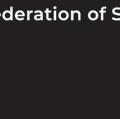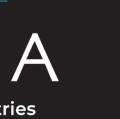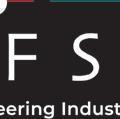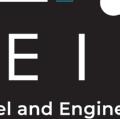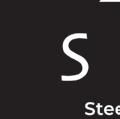


















For NEARLY 80 years, SEIFSA has been helping businesses succeed and achieve their goals by proving industry-leading solutions that protect and empower employers

Join an association
Publisher
Steel and Engineering Industries Federation of Southern Africa (SEIFSA) Advertising sales@seifsa.co.za or (011) 298-9400
Editor Nuraan Alli
Tel: (011) 298 9436 or E-mail: nuraan@seifsa.co.za
Design and layout Zandile Ngubeni
Tel: (011) 298-9421 or E-mail: zandile@seifsa.co.za ISSN - 1560 - 9049
Opinions expressed in the articles do not necessarily reflect the views of SEIFSA. Similarly, advertising in this publication does not imply endorsement or approval of any such products or services by SEIFSA. While every attempt is made to ensure the accuracy and correctness of information contained in this publication, SEIFSA accepts no liability for any losses or damages sustained through the use thereof. Articles may only be reproduced with permission.
When a company logo appears with an article, it indicates that the article has been commissioned by the company.
SEIFSA News is distributed free of charge to all companies in the metals and engineering industry.
issues published annually.
South Africa’s severe economic challenges — from load-shedding to the inflationary effects of the war in Ukraine — make it more important than ever for SEIFSA to take a stand and call for a far more business-friendly environment.
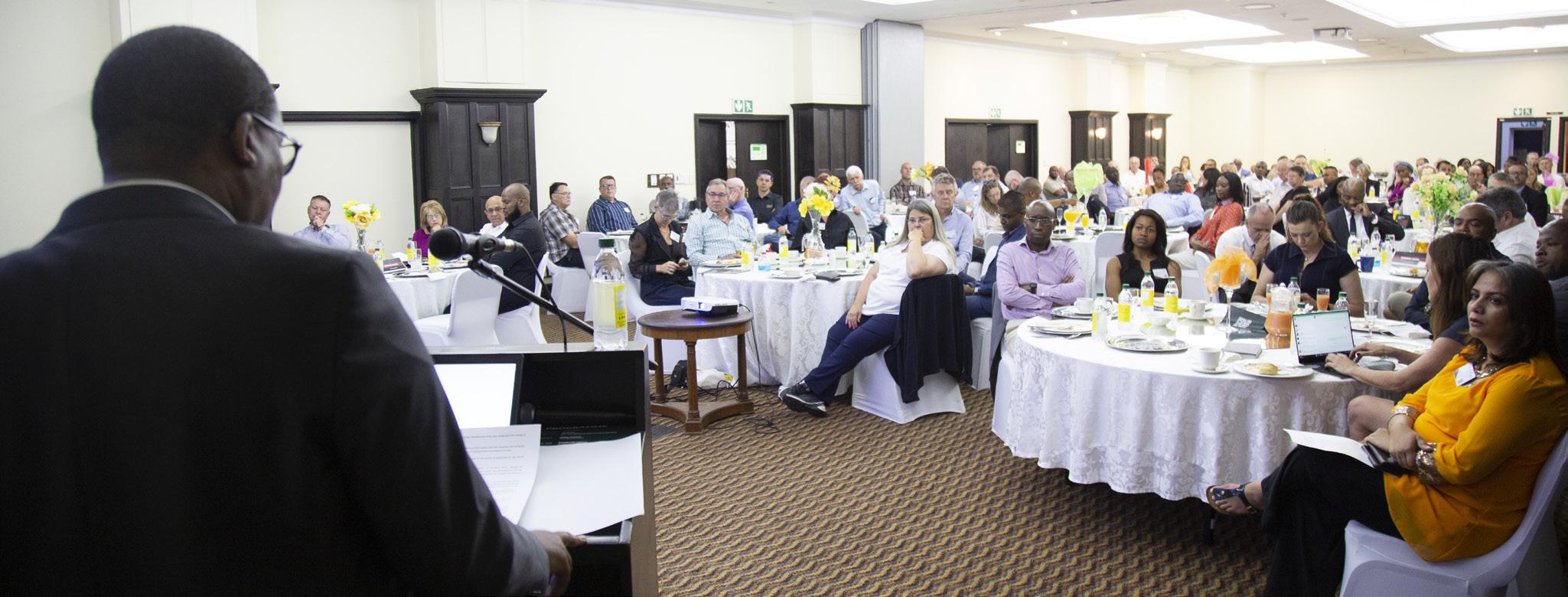
This is the view of Steel and Engineering Federation of Southern African (SEFSA) President and Chairman Elias Monage, who was speaking
“
at the Annual SEIFSA Presidential Breakfast on Friday at the Holiday Inn Johannesburg Sunnyside Park.
These harsh economic realities emphasise the important role that business leaders need to play, and more importantly, the role SEIFSA must play in representing its members in the lobby for a far more conducive and business friendly environment,” said Monage.

The breakfast provides a yearly opportunity for companies in the Metals and Engineering sector to engage with the SEIFSA’s executive team and board of directors. Justice Malala, one of South Africa’s bestknown political analysts, founding editor of This Day newspaper, publisher of the Sowetan and Sunday World, and Sunday Times correspondent, provided thought-provoking discussion and in-depth insights in his address.

While Monage recognised that little can be done to change the global economic headwinds, “the domestic ones — which are frankly own goals of bad policy choices and economic mismanagement — are in the hands of the policymakers. And this is where SEIFSA must continue to play the important role of keeping government accountable”.
Locally, the energy crisis has hamstrung the economy and deters much-needed investment, while “the rising cost of capital which will taper domestic economic activity and the poor state of local government, affecting service delivery for companies and infusing costs of doing business, are all headwinds faced by the sector — and at present, only intensifying”, warned Monage.
Malala called for attendees to fasten their seat belts and then took them through some of South Africa’s deepest failures — the energy crisis, the looming water crisis, the riots in KwaZulu-Natal and Gauteng in July 2021, the 65% youth unemployment, xenophobia, a widespread crisis of confidence and many more — all contributing to a deep distrust in the ANC, the government and its institutions.
He warned that in the face of all these challenges the “key risk is when people lose confidence in democracy itself”.
But he did mention that there is “some positive news”, including the censuring of consulting firms McKinsey and Bain as a result of what was exposed during the Zondo commission into state capture. “The battle to win over corruption seems to have been rejuvenated,” he said.

He called the Zondo commission a “victory for law and order”, adding that the judge did an outstanding job despite many challenges. Business has a huge role to play in addressing these challenges, said Malala. “SEIFSA, as an organisation, and many others have a key voice” and can provide the country with a “path forward”.
As part of the presidential breakfast, SEIFSA also announced the federation’s new board at the breakfast, with SEIFSA CEO Lucio Trentini saying: “We are confident that SEIFSA’s new leadership will continue with the excellent efforts of our outgoing board members, and the newly elected members will bring their own dynamism, experience and wisdom to the task.”
Trentini said: “This board has the appropriate mix of expertise, experience and skill to provide the necessary strategic direction and guidance to the SEIFSA Executive.”






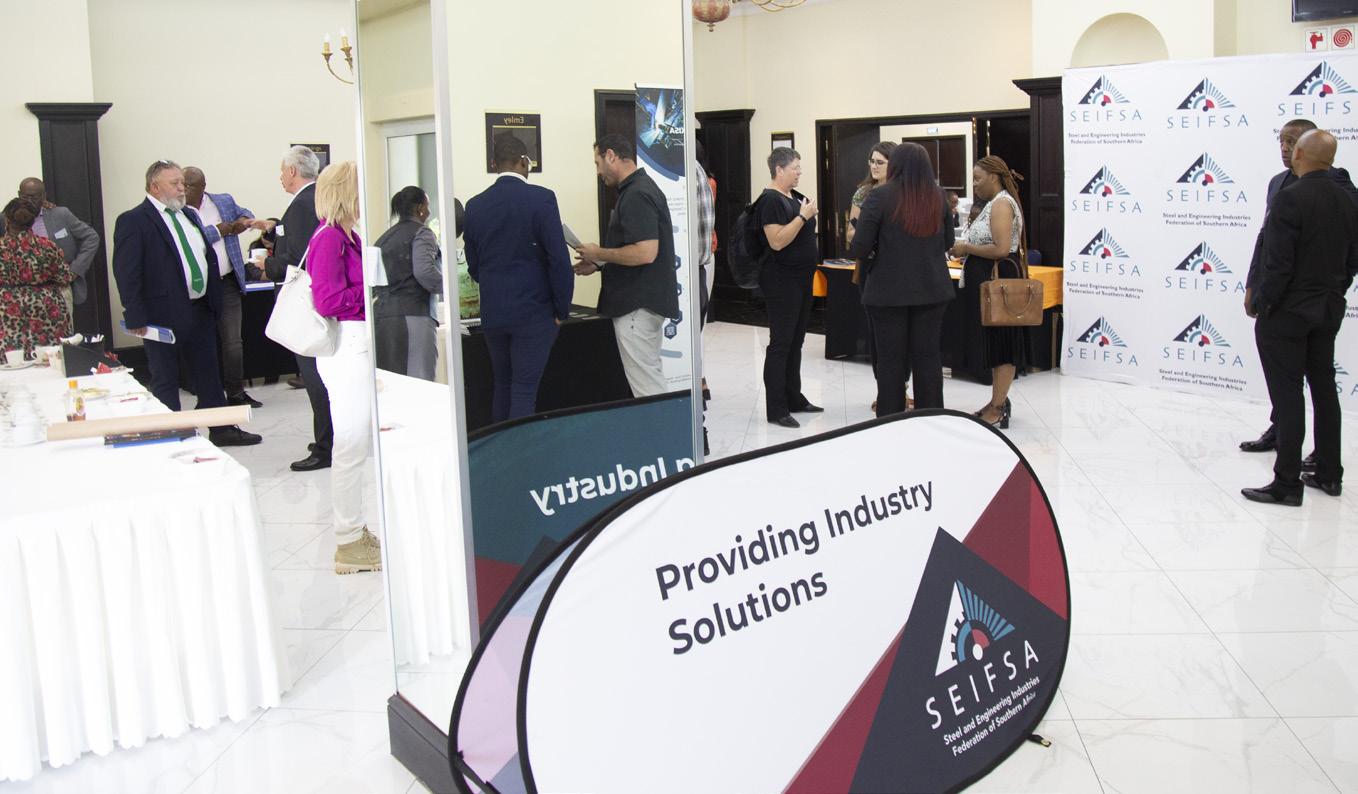
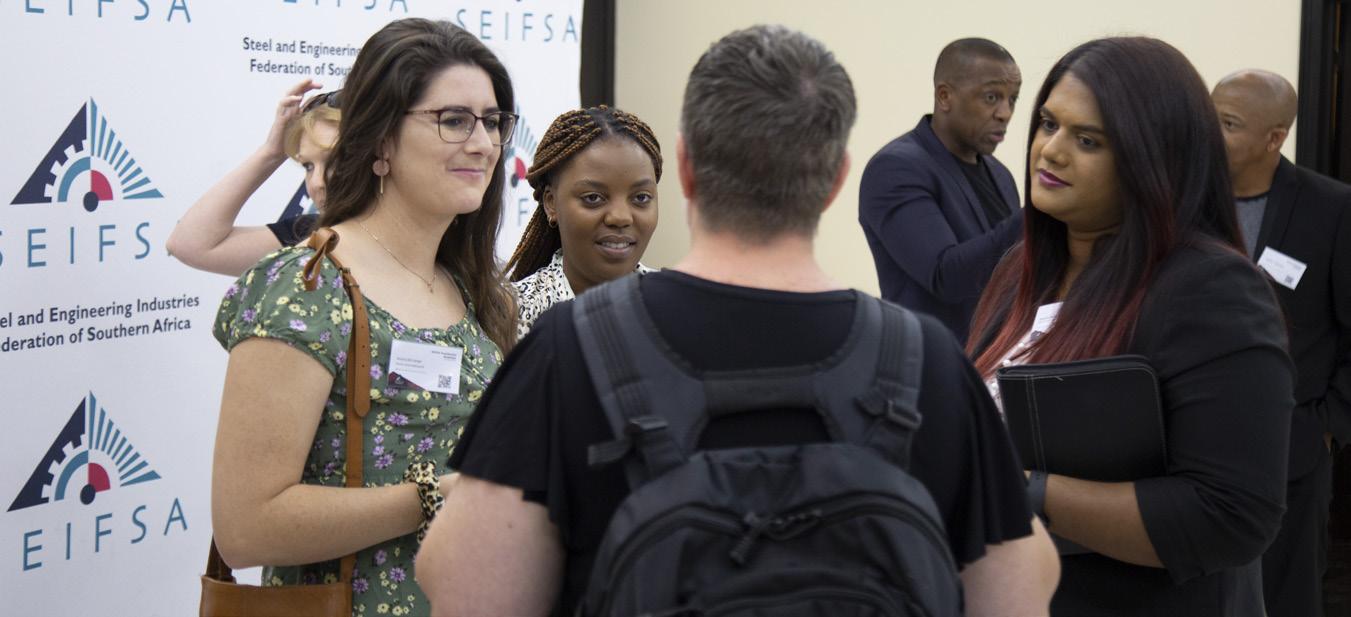
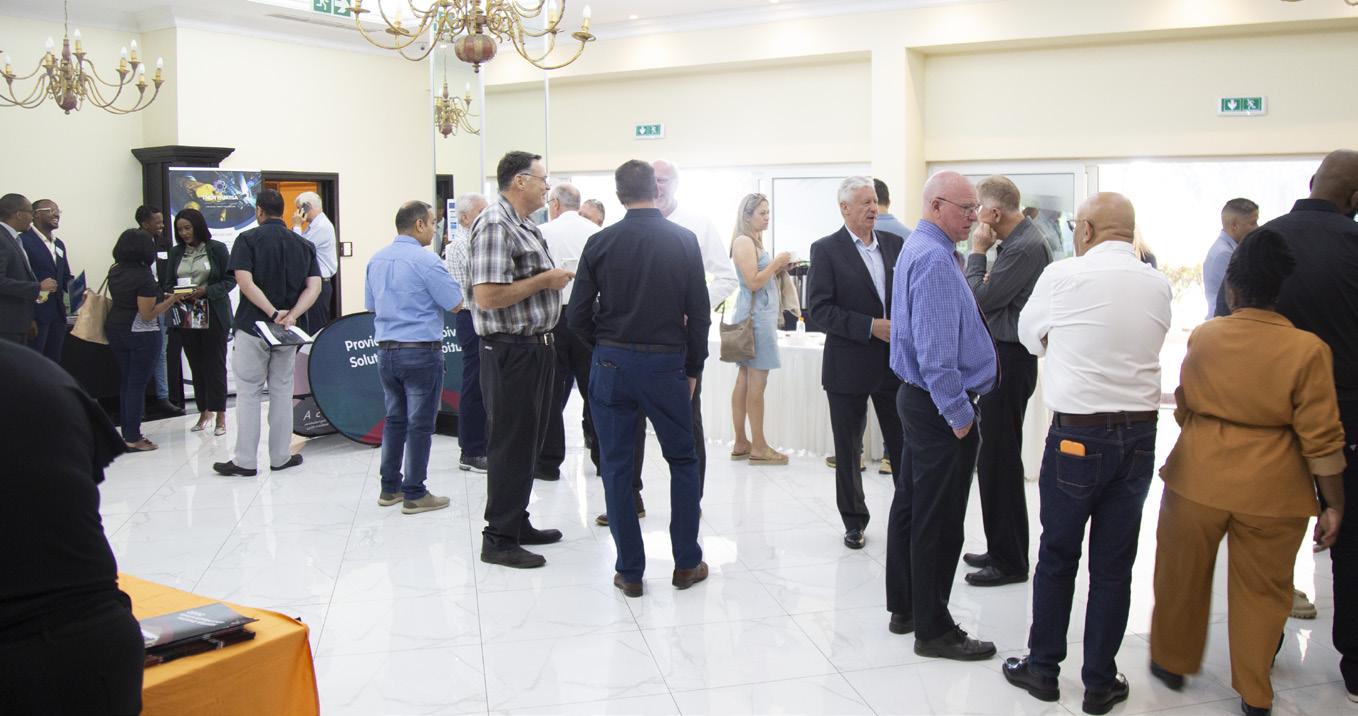
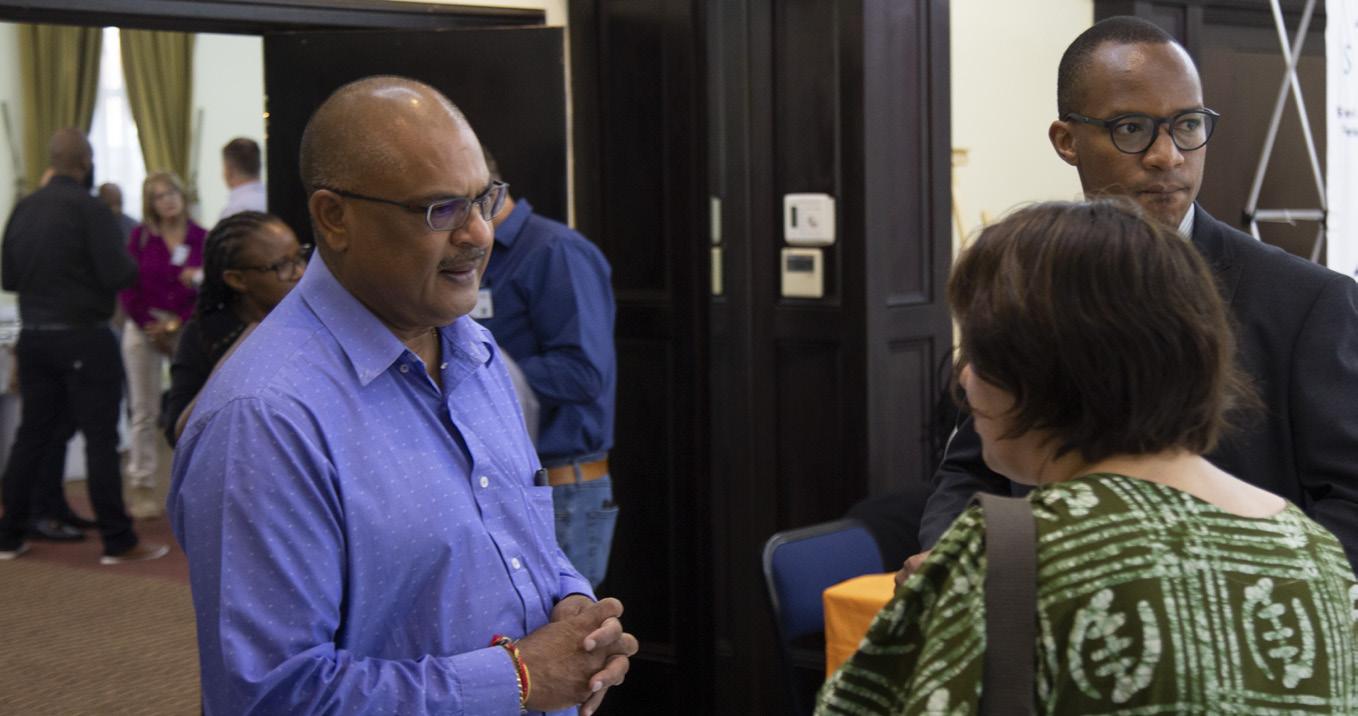
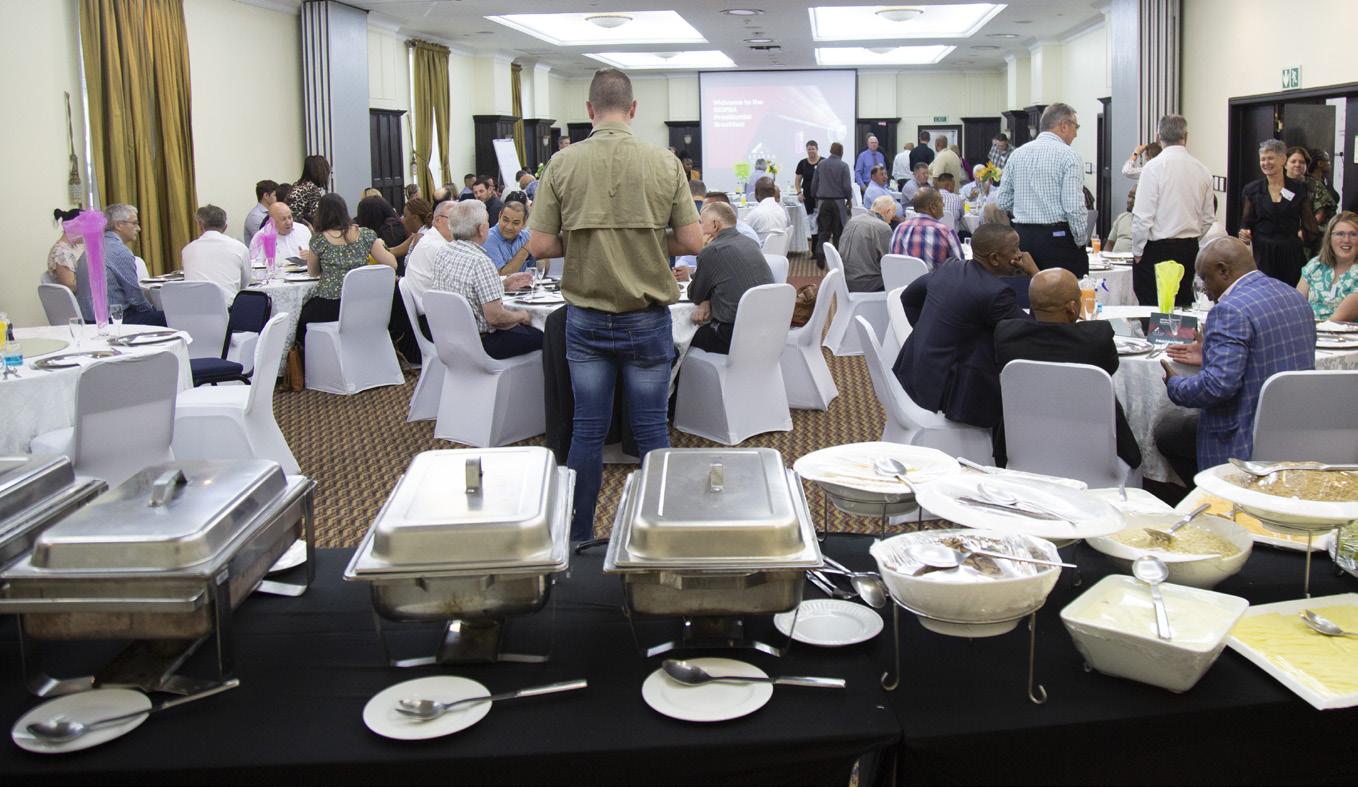

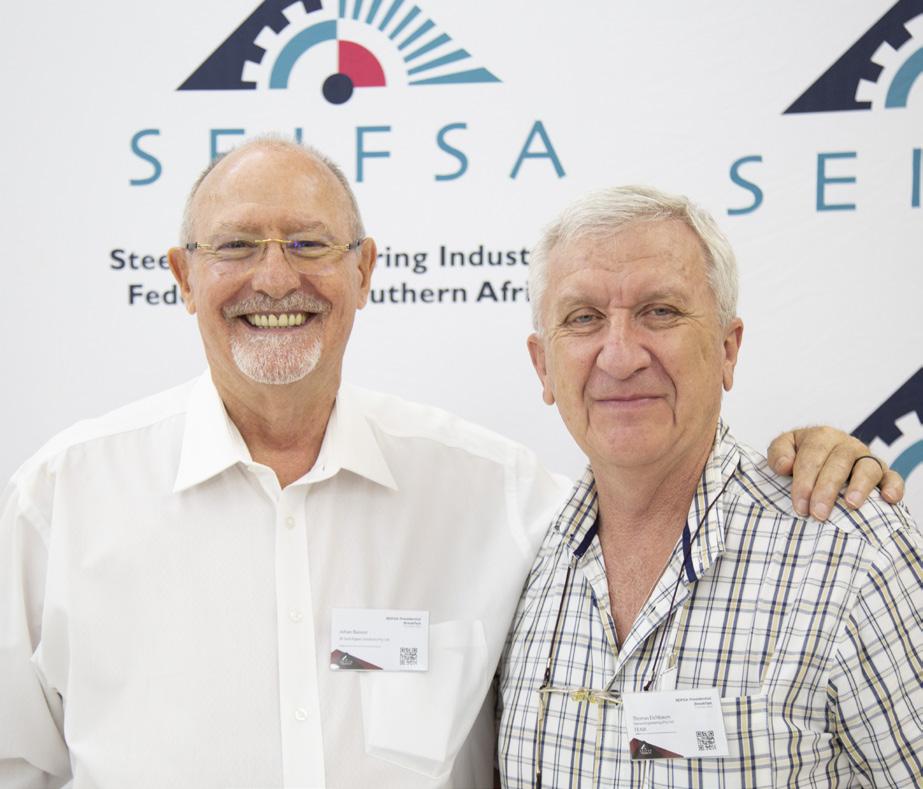
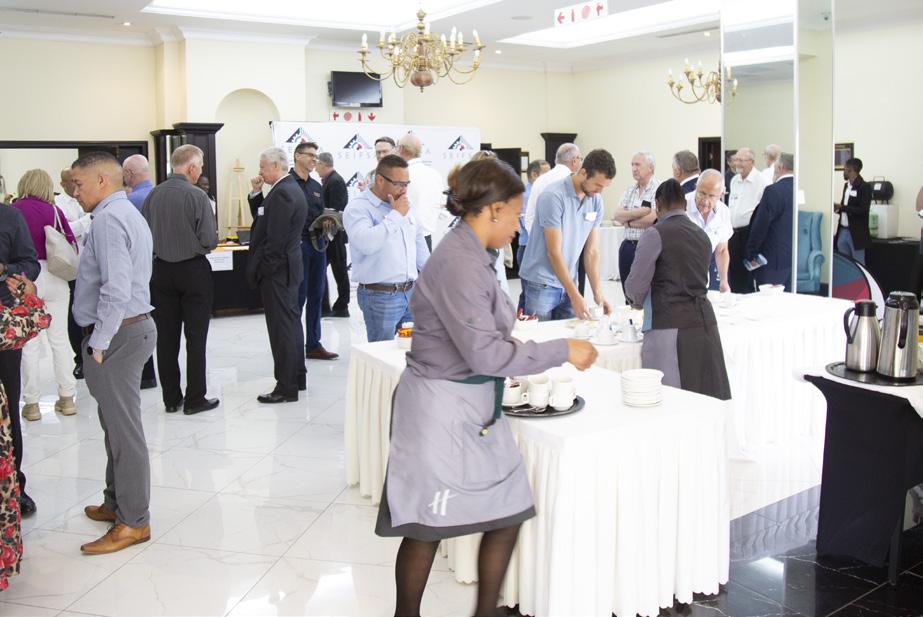
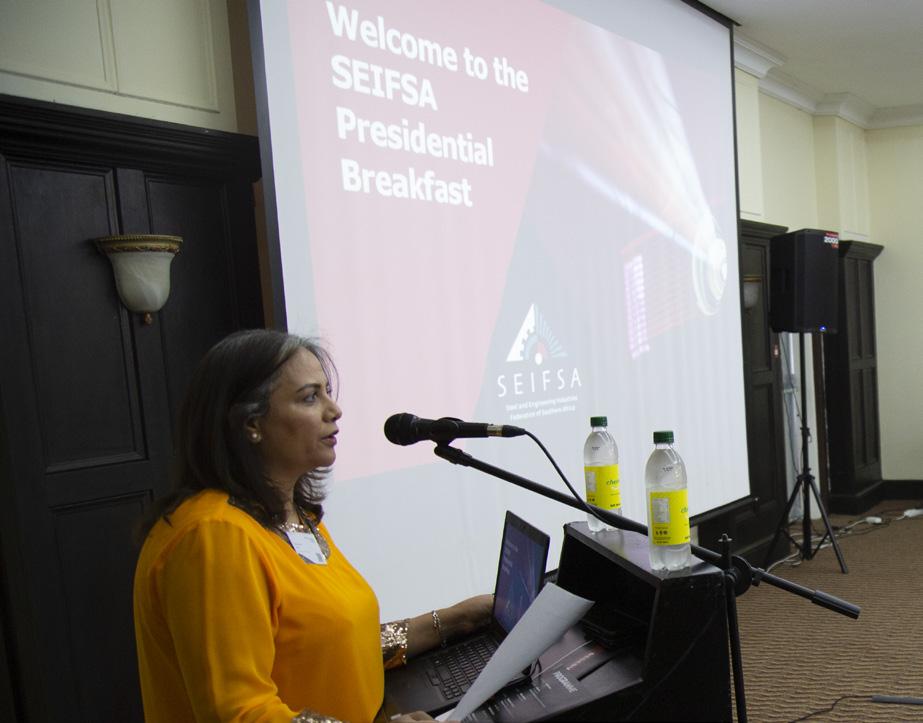
thereby making it legally binding on all employers and employees
who are subject to the agreement’s scope of application.
This brings to an end a journey that began more than a decade ago – costing many millions of rands, occupying far too much court time and, quite frankly, could have been avoided.
who are members of one or other employer organizations represented on the Council.
I have no doubt, however, that legal challenges will continue all the way to the Constitutional Court.
the Consolidated Employers Organization (CEO), who on their own represent in excess of 670 employers employing well over 14 000 employees.
After many rounds of litigation, the fact remains we have an agreement covering terms and conditions of employment, supported by the overwhelming majority of employees who are members of the trade unions (represented on the Bargaining Council) and the overwhelming majority of factory workers employed by employers
Whilst the Main Agreement has been unfairly and mischievously characterized as a SEIFSA / NUMSA Agreement, this couldn’t be furthest from the truth. The Agreement enjoys the support of five of the biggest trade unions in the industry, including NUMSA and the support of 18 independent Employer Organizations, in addition to

Whilst we acknowledge the right of our detractors to continue in their quest to have the agreement declared a nullity, our critics would be best advised to do some introspection and ask themselves what have they been doing for the last twenty years, participating on a forum that is designed and created to support centralized collective bargaining.
Bargaining Council by their very nature are created to uphold standards of fair play and decency, in the hope that every employer is free to run a business in a climate of industrial peace, stability, certainty and workers free to earn a decent wage from an honest day’s work. Bargaining Councils are designed to bring together employers and trade unions with the very purpose of concluding agreements that both sides can live with. This year we witnessed the coming together of NUMSA and the Plastic Convertors Association (PCA), the creation of their own bargaining chamber and the
signing-off of their own collective agreement, operating under the auspices of the MEIBC. This agreement too, has been gazetted and extended to all employers and employees in the plastic sector of the metals industry.
responsibility, duty and burden to negotiate, bargain and conclude deals in the best interest of one’s members.
This chamber will join other stand-alone Negotiating Forums and House Agreements all operating under the umbrella of the MEIBC.
With industry on its knees for reasons employers are all too well familiar, now is the time to rise above the noise and play a constructive role. After all, employers represented by all the Employer Organizations on the Bargaining Council have far more in common than what they think.
Agreement and how it can benefit you and your business attend a the SEIFSA workshop by attending the Main Agreement Training Gazetted Training
In an environment where employers are struggling to keep the lights on and workers eking out a living, one needs to question the strategy of resorting to never ending court action and litigation, to achieve what ends?

When all has been said and done, collective bargaining, in the final analysis, is about relationships not power – its high time our detractors learnt this point and put their shoulder to the proverbial wheel.
If you are reading this and you are not a member of an Association federated to SEIFSA, now would be a good time to join. To find out more about membership and benefits click here
Collective bargaining is tough, uncompromising, its contested terrain, it requires ingenuity, creative thinking and solid relationship in order for deals to be concluded.
If you represent a constituency, you have a duty through the principle of agency and mandate to bargain as hard as you can to get the best deal possible for your membership.
Our loudest critic has been occupying a key space on the Bargaining Council for over two decades, and we are told time and time again that they represent a considerable constituency. This may be so, but with that comes the
Should you wish to scroll through the Main Agreement
Click here
if you want to find out a little bit more about the Main












































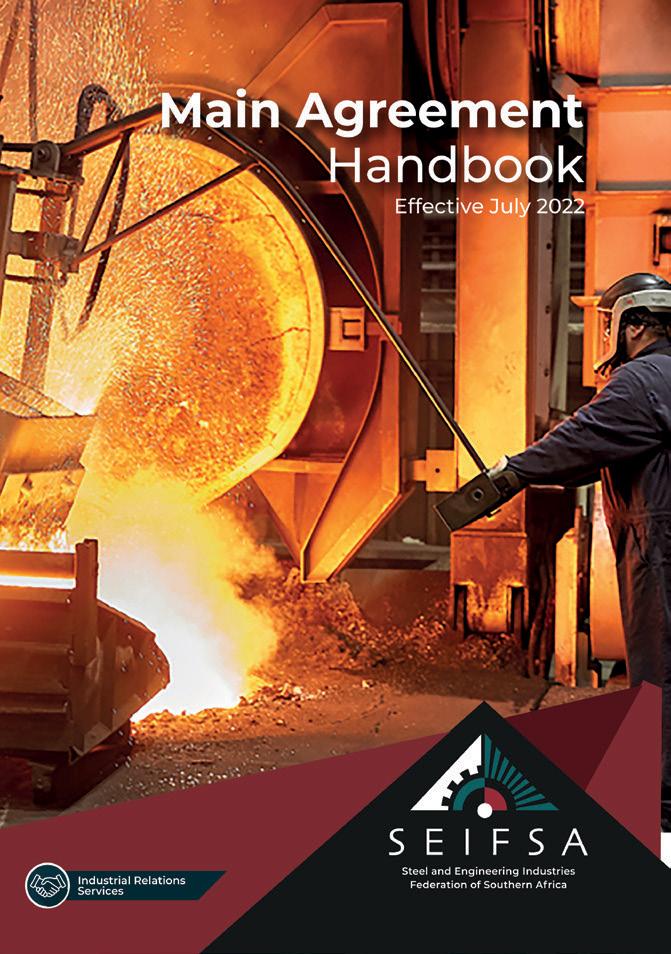
There are other employer organizations to choose from. Finding one you can count on and build a relationship with for the long term is aa difficult task. Here are some reasons why you have made the best decision for your company by choosing SEIFSA
To us, it’s not just a job – we take pride in the solutions we offer. We encourage each other to achieve excellence in all our endeavors and aren’t satisfied until projects meet our own personal high standards. Whether it’s lobbying and advocating for a business-friendly environment, deliver ing the best possible outcome during wage negotiations, opening a world class Training Centre, hosting a Confer ence or producing market- leading products and solutions like the SEIFSA Price and Index Pages (PIPS) no-one quite does it like SEIFSA.
We are well aware that trust is exceptionally hard to earn and easy to break. We know that customers, members and potential members are more likely to recommend a prod uct or service if the user experience was a positive experi ence.
We understand the importance of delivering top of the range professional product offerings and services across all our service divisions but more importantly we are com mitted to earning your trust. After all, the real question is a matter of trust. Trust is earned gradually.
My trust in SEIFSA didn’t happen overnight, it started more than thirty-two years ago when I joined SEIFSA as a junior industrial relations advisor. Trust is also based on experience, and in my experience, SEIFSA has more often than not delivered a positive customer experience. We are con tinually evolving, adapting to emerging and accepted best practices. Our professionalism, dedication and intellectual capital sets us apart from our competitors. No other organ isation we know of can match what we offer.
In answering the why choose SEIFSA, I’ve been honest about what we’re about and the reasons why we believe you should choose SEIFSA above all our competitors. I’ve of fered you our big selling points: 79 years of experience, our record in providing industry and company level solutions, excellent product offering and solutions, unmatched intellectual capital – perhaps most importantly – our business platform is designed to have us in business for the next twenty years and beyond.

To our trusted and loyal affiliated member companies thank you for trusting SEIFSA to be a part of overseeing aspects of your business that fall within the ambit of the world of work – to potential new members – we invite you to let us earn your trust.
So, to potential new members, lets get started, fill in the ap plication form, or send us an email at nuraan@seifsa.co.za
– we know you won’t be disappointed.
SEIFSA had the opportunity to exhibit for the first time at Electra Mining, which took place at the Johannesburg Expo Centre, Nasrec 5- 9 September.

SEIFSA COO, Tafadzwa Chibanguza, presented the Industry Conference Report on the Mainstreaming the Steel Master Plan, which was well received by the exhibition.
After a four-year- year hiatus the worlds second largest mining exhibition returned to South Africa and received more than 30 000 visitors. This year’s trade show was marketed as the 5-in-1 trade show, and covered everything from mining, electrical and automation to manufacturing, power, and transport.
SEIFSA was able to connect with current and potential future members, showcasing SEIFSA’s products and services.
“Visiting the various exhibitors and getting to engage with them gave some new insights into the extent of innovative solutions being championed by local and international companies for the mining sector. It was also very encouraging to note the number of companies that rely on the SEIFSA Price and Index Pages (PIPS) for their contract price adjustment. SEIFSA received a number of enquiries from potential members and believe that the event was a resounding success and looks forward to participating in 2024” said Chibanguza.
SEIFSA was able to connect with current and potential future members, showcasing SEIFSA’s products and services

Recently, the company handed over more than 200 dedicated ed ucational technology tablets to the Grade 11 class at Cowan High School in Gqeberha. The sponsorship comes as learners started the second semester countdown towards their critical matric year.


New Brighton-based Cowan High School achieved an 87% matric pass rate last year, which the class of 2023 will be hoping to improve upon with the aid of their devices.
Each Cowan High learner received their own personalised tablet pre-loaded with mobile data and curriculum-aligned content that matches their subject choices and interests, as well as education al websites and resources to augment the learning process. A live helpdesk, providing access to technical and content support, is included in the ecosystem.
educational technology company, we are driven by the idea that, through education, we can provide each and every child with an ecosystem to better themselves, their communities and wider so ciety,” said Gurney. “We welcome support from forward-thinking partners like the Aveng Trident Steel, who are looking to make a significantly greater social impact.”

Currently used by almost 3 000 school learners in six provinces, the tablets are locked for educational purposes only and do not allow distracting social media or entertainment platforms.
According to Odin Education’s business development manager, Dean Gurney, the device will, over time, use artificial intelligence and analytics to learn each pupil’s unique interests and capabilities and push more of this content to their device, allowing them to ex plore and develop their natural curiosity and creativity. “As an
Aveng Trident Steel’s financial director, Raven Brirajh, said the com pany was pleased to assist the country’s future leaders with tech nology that would enable learning. “It is equally important to pro vide support in the areas in which we operate. We wish the Grade 11 learners at Cowan High all the very best in their studies.”
Workshops – October and November
Obtain key insights on the Main Agreement, the Implications for Parties and Non-Parties, How to Apply for Exemption, and/or to Observe the Special Phase-in
Dispensation to Pay 60% of the 2020 Minimum Rates by 30 June 2024.
The workshop will focus on:
Gazettal
the gazettal of the main agreement and implications for parties and non-par ties
wages, leave enhancement pay (leave bonus) etc. special phase-in exemption
Annual leave
understanding the leave pay and leave enhancement pay (bonus) formula’s, what constitutes a shift for the purpose of calculating leave pay and bonus? annual shutdown arrangements
Understanding the Key Conditions of Employment of the Main Agreement dealing with intermittent loadshedding; short-time and lay-off; sick notes signed-off by traditional healers; family responsibility leave and how it differs from the provisions contained in the BCEA; many other key conditions of employment managers must be aware of!
When you leave, you will be well versed in the conditions of employment for employees covered by the Main Agreement


Wages Rates • Payment for overtime • Calculation of shifts for leave & leave enhancement pay
The Wage and Leave Bonus Exemption Procedure • Flexible working time arrangements

Family responsibility leave • Managing sick notes
Annual leave pay & Leave enhancement pay
Standby and call-out allowances
Industrial Relations Services
Conflict of interest’ means different things to different people – just ask the miscreants who were fingered in the state-captured report, who will provide you with an assortment of different definitions to explain away their indiscretions.
Written By Neil Coetzer and Courtney Wingfield of Cowan-Harper Madikizela AttorneysThe SCA expanded on this by confirming that this duty entailed, inter alia, the following:
1. not to work against their employer’s interests;
2. not to place themselves in a position where their interests conflicted with those of their employer;
3. not to make a secret profit at the expense of their employer; and
In the employment law context, the concept of conflict of interest can be directly linked back to the duty of good faith which is owed by an employee to their employer. The duty of good faith itself is farreaching and a somewhat nebulous concept, meaning that defining its exact contours is not always possible. We set out below several principles which emanate from the case law.
In Sappi Novoboard (Pty) Ltd v Bolleurs (1998) 19 ILJ 784 (LAC), the Labour Appeal Court (“the LAC”) found that it is an implied term of
every contract of employment that an employee will act in good faith towards their employer and will serve their employer honestly and faithfully.
4. not to receive a bribe, secret profit or commission in the course of or by means of their employment with the employer.
The SCA in Ganes thus interpreted the duty of good faith to, in essence, prohibit an employee from acting in direct conflict with their employer’s interests. In Phillips v Fieldstone Africa (Pty) Ltd (2004)
25 ILJ 1005 (SCA) the SCA took this interpretation even further, to include not only actual conflicts of interests but also those where there is a real sensible possibility of a conflict of interest.
This understanding was followed by the Supreme Court of Appeal in Ganes & Another v Telecom Namibia Ltd (2004) 25 ILJ 995 (SCA). In this matter, the Supreme Court of Appeal (“the SCA”) found that in the absence of an agreement to the contrary, the employee in that case owed a duty of good faith to their employer.

In Schwartz v Sasol Polymers and Others (2017) 38 ILJ 915 (LAC) the LAC held that the dishonest non-disclosure of a material fact justifies a dismissal and that calculated silence in the face of a duty to inform an employer of material facts amounts to a fraudulent non-disclosure. An example of this is where the employer has a policy which obliges employees to disclose all external interests and the employee fails to make complete disclosures.
In De Beers Consolidated Mines Ltd (Venetia Mine) v National Union of Mineworkers & Others (2020) 41 ILJ 884 (LAC) the LAC found that where employees are involved with the service providers of their employer, they have a duty to disclose this.
In Bakenrug Meat, the LAC also found that no real competition between the employer and the employee need exist for dismissal of the employee to be considered the appropriate sanction. Outside activities, such as working a second job or running a side-hustle, even where there is no competitive element with the employer, may still impact negatively on the employee’s ability to discharge their duties effectively. In these circumstances, the employer is entitled to take the appropriate action to ensure that the employee is able to fulfil their contractual duties as required.
More recently, in Bakenrug Meat (Pty) Ltd t/a Joostenburg Meat v CCMA and Others (LAC) (Unreported, CA8/2020) the LAC also found that an employee who runs a side-line business (or ‘side-hustle’ as it is colloquially known) and fails to disclose this to their employer acts in violation of the duty of good faith owed to their employer.
Greater emphasis should be placed on the duty of good faith in our employment. Some serious consideration will need to be given to how this duty will need to evolve, if at all, in the gig economy, as well as the new world of work which incorporates remote working and increased flexibility.
Employees must always consider the duty that they owe to their employer prior to engaging in external work, and should as a general rule disclose all outside interests to their employers.
As can be seen from the development of the case law above, any suggestion that there is no direct competition between business will not absolve the employee of their gross misconduct.

Reported on: 11 July 2022
President Cyril Ramaphosa’s cabinet has approved the publication of the Draft Legal Sector Code (Draft LSC) for public comment.
The draft legal code comes as the legal profession does not currently have a sector code to guide it in addressing the imbalances and inequalities in the profession, cabinet said in a statement on Monday (11 July).
It added that the development of the draft code was overseen by the Legal Practice Council, a statutory body established in terms of Section 4 of the Legal Practice Act, and was guided by the Broad-Based Black Economic Empowerment Act.
“The objectives of these codes are to facilitate the transformation of the legal sector to achieve representation as per the country’s demographics. The code will also ensure the development of the body that will produce well-trained and competent providers of legal services,” it said.
“The B-BBEE Act of 2013 provides for the Minister of Trade, Industry and Competition to issue codes of good practice on black economic empowerment in the specific sectors. Members of the legal profession currently do not have a sector code to guide them in addressing the imbalances and inequalities in the legal profession,” cabinet said.
The government is also expected to conclude the legislative process for the Employment Equity Amendment Bill in September 2022, in what is expected to be the vanguard of a new transformation push for the country.
The bill will allow the Employment and Labour minister Thulas Nxesi to set employment equity targets for different business sectors. The minister can set targets for different occupational levels, sub-sectors or regions.
He added that the council will be specifically responsible for:
- Reviewing progress around B-BBEE;
Advising on the Draft Codes of Good Practice that the minister of Employment and Labour will be publishing for public comment;
- Reviewing sector charters;
Providing advice on draft transformation charters such as the Draft Legal Services Charter that will soon be published for public comment.
The amendments would also require the government to issue contracts only to firms that have been certified as compliant with this law. The bill is currently before president Cyril Ramaphosa for consideration.
Ramaphosa also formally established his new Broad-Based Black Economic Empowerment Advisory Council last week in a move he called a ‘landmark’, ‘historic’ and ‘a game-changer’ for transformation in South Africa. Ramaphosa said the group will be responsible for guiding the trajectory of B-BBEE and transformation efforts in South Africa, following years of slow economic growth and the impact of the Covid-19 pandemic.
“When we speak about the next frontier we are talking about a new vision for B-BBEE; that builds on successes, that learns from shortcomings, and that is both agile and adaptive in response to the realities of the national and global economies.
“In this year’s state of the nation address, I called for a new consensus to achieve higher rates of economic growth, social transformation and advance common prosperity. Consolidating B-BBEE is one of the aspects such a consensus will rely upon. There can be no growth without economic inclusion. There can be no inclusive recovery and reconstruction unless B-BBEE is at the center of our efforts.”


and Commercial
Calculation
Contract Price
EC Division publishes annual/quarterly State

Metals and Engineering Sector

monthly Price
product
The draft tax legislation released by National Treasury on 29 July 2022 contains details of the much anticipated two-pot retirement system. The proposed changes are quite far-reaching – although there will also be criticism that the changes do not go far enough.

The intention is for the changes to address the following two concerns:
The inability of households in financial distress to access their retirement savings prior to withdrawal or retirement; and
The failure to preserve funds for retirement, in those instances where members withdraw from their pension provident funds on termination of employment.
In terms of the current rules applicable to pension and provident funds, members may only access their retirement savings upon withdrawal or retirement. As a result, in times of financial distress, members of pension or provident funds sometimes terminate their employment to withdraw from their pension or provident funds.
funds on the other hand may only access their funds upon retirement, provided that members of preservation funds are entitled to a once-off opportunity before retirement to withdraw an amount from such fund.
Although the Covid-19 pandemic intensified the calls of members to have immediate access to their accumulated retirement savings to alleviate financial pressure, it is clear from the proposed amendments that members will not be allowed pre-retirement access to their current accumulated savings, only to a portion of future savings.
The following, in a nutshell, are the main features of the proposals:
With effect from 1 March 2023, all pension, provident, preservation and retirement annuity funds will be obliged to allocate contributions paid to them to a new ‘Retirement pot’ and a ‘Savings pot’. Retirement savings up to 28 February 2023 will be ‘grandfathered’ by way of a ‘Vested pot’ and will not be impacted by the new rules.

Members will be able to withdraw funds from the Savings pot, which amounts will be subject to the normal tax rates.
According to the media statement that was published by National Treasury, the two-pot system ‘will present a better balance between ensuring preservation of retirement savings and allowing some withdrawals through a savings vehicle incorporated into the retirement funds’.
The amounts in the Retirement pot will only be accessible on retirement. It appears that it will not be possible to withdraw funds from this pot on termination of employment prior to retirement.
With effect from 1 March 2023, up to one-third of the contributions paid to a retirement fund may be allocated to the Savings pot while the balance of the contributions must be allocated to the Retirement pot. Retirement fund contributions will still be tax deductible up to the current caps (27.5% of taxable income or ZAR 350 000 per annum), however, contributions in excess of these caps must be allocated to the Retirement pot.
In this way, National Treasury will be assisting those who may be in financial distress to access a portion of their retirement savings while they remain a member of the retirement fund. A member does not need to provide any reasons to the retirement fund as to why he or she wishes to make an annual withdrawal from the Savings pot.
Should there be any funds available in the Savings pot when a member reaches retirement age, then the member may choose to either transfer the funds to the Retirement pot or may choose to withdraw the available balance in cash.
If the proposed amendments are promulgated in their current form, members of retirement funds will be entitled, post 1 March 2023 to withdraw an amount of not less than ZAR 2 000 from their Savings pots once a year without having to resign/ withdraw from service or retire (referred to as a Savings withdrawal benefit).
Amounts allocated to the Retirement pot cannot be accessed before a member reaches retirement age. On retirement, the total value in the Retirement pot must be paid in the form of an annuity (monthly pension). However, if the value of the Retirement pot is less than the proposed min imum amount of ZAR 167 500, then the value may also be taken as a cash withdrawal.
Despite the references to this as a two-pot system, there is also a third pot that will hold the current accumulated retirement savings, referred to as the Vested pot. All contributions (member and employer, where applicable) and retirement interest that accumulated in the funds before 1 March 2023 must be valued as at 28 February 2023 to determine the Vested pot. The Vested pot will remain subject to the current conditions, which means that members of a pension fund or provident fund will not be able to withdraw savings from the Vested pot before resignation or retirement. As preservation funds and retirement annuity funds must also provide for a Sav ings pot and a Retirement pot, members should also be able to withdraw savings from a preservation fund and a retirement annuity fund. As is the case for pension and provident funds, the Savings pot and Retirement pot will only apply in respect of contributions received from 1 March 2023 onwards.

Any amounts withdrawn from the Savings pot will be included in the member’s normal taxable income and will not be subject to the Withdrawal Tax Table. This differs from the tax treatment of a lump sum paid by a retire ment fund upon the termination of employment prior to retirement age, for example, upon resignation.
High-income earners who benefit from a 45% tax benefit when claiming their contributions as a deduction, would thus have a 9% tax ‘saving’ if taxed at 36% on a Savings withdrawal benefit.
45% tax benefits of high income earners = 9% tax savings, if taxed
The fact that National Treasury has not made any changes in respect of the tax treatment of contributions (i.e. mem bers are still entitled to the same tax benefit) while taxing the Savings withdrawal benefit at the normal tax rate, clearly demonstrates the policy intention of encouraging members to save for retirement while not encouraging members to access the Savings pot. Further, the fact thatprovision is made for amounts to be transferred tax-free from a Savings pot to a Retirement pot, or between simi lar pots in different funds, again demonstrates this policy intention.
Although the Withdrawal Tax Table is substantially more onerous than the Retirement Tax Table, National Treasury was concerned that applying the Withdrawal Tax Table to a Savings withdrawal benefit, would provide some form of tax arbitrage.
at 36% on savings withdrawal benefit
“
The 36% marginal tax rate in terms of the Withdrawal Tax Table is still 9% lower than the marginal tax rate in terms of the normal tax tables (45%).
36% marginal tax rate = 9% of withdrawal tax table
The application of normal tax tables will not necessarily result in the ‘Savings withdrawal benefit’ being taxed at a higher effective rate. In those instances where a member’s normal marginal tax rate is 36% or less, and if the member is accessing funds from the Savings pot in order to replace lost income (i.e. if he or she is withdrawing savings in order to replace remuneration), the application of the normal tax tables will not necessarily result in a higher tax liability than if the Withdrawal Tax Table was applied.
Further, the fact thatprovision is made for amounts to be transferred tax-free from a Savings pot to a Retirement pot, or between similar pots in different funds, again demonstrates this policy intention.
A lot of work would need to be done by, amongst others, retirement funds, the Financial Sector Conduct Authority (FSCA), fund administrators and the South African Revenue Service (SARS) before 1 March 2023 to ensure the implementation of the two-pot system. For example, retirement fund rules would need to be amended to accommodate the two-pot systems; transfer between funds and ensuring vested rights.

ed rules must also be approved by SARS. Whether the two-pot system will be im plemented in its current proposed form by 1 March 2023 is to be seen. Some may say that the proposed implementation date is a bit ambitious.
Comments and queries on the pro posed two-pot system should be sent to National Treasury at retirement. reform@treasury.gov.za before the close of business on 29 August 2022.
Retirement funds would also need to reconsider their investment strategies and whether assets would need to be invested in more liquid portfolios. The FSCA will have its hands full in approving rule amendments and dealing with fund queries and administrators may need to update their administration systems to accommodate the split among the three pots. The amend
National Treasury advised that it will consider the feedback received from the public on the draft Bill. The Standing Committee on Finance and the Selected Committee on Finance in Parliament are expected to also call for public comment and will convene public hearings on the draft Bill before their formal introduction in Parliament. It is still early days, however, considering the amount of work to be done and some stakeholder feedback already received on the proposed amendments, it is likely that a second draft Bill will be published for public comment.
Please contact Deirdre Phillips or Aneria Bouwer or any member of our Banking and Financial Services Regulatory or Tax team should you have any queries or questions on the proposed tax changes.
Bowmans is a leading African law firm with offices in Kenya, Mauritius, South Africa, Tanzania, Uganda and Zambia and Alliance firms in Ethiopia and Nigeria.

Thousands attended and celebrated this year’s national ceremony for Women’s Day in Richmond, KwaZulu-Natal. It is a day to push awareness for the rights of women and a call to action against abuse, violence and harassment of South Africa’s women. But what about the other 364 days of the year? It’s important for business owners to take seri ous stock of whether they are backing or breaking down the progress of South African women in the workforce.
For female employees to thrive, the working environment and culture needs to be safe. Recent studies of 1000 workers conducted by Columinate Research Agency revealed that only 30% of women and 18% of men report being victims of unwanted sexual advances. And what’s more, a shocking 51% of workplaces do not have a clear sexual harassment policy in place. In July, The Temporary Employment Services Division (TESD) held their latest webinar to lead the support for modern work environments that safeguard the wellbeing of employees physically, mentally and emotionally.
The TESD’s timely webinar presented current understanding of harassment preven tion and procedures for workers and management to follow. The emphasis was placed on easily accessible channels to report misconduct and a company culture of zero toler ance towards any form of harassment.
51% of workplaces do not have a clear sexual harassment policy in place
“
Every business should devote their resources to ensuring compliance with latest legislation involving harassment. Turning a blind eye to these could result in not just legal ramifications, but potential criminal liabilities too. Staying alert to behaviour in the workplace which falls under harassment is crucial. This includes paying attention to online behaviour of staff on all levels. The TESD provides a free, downloadable harassment risk assessment guide to help employers and employees evaluate their specific circumstances.
The TESD provides temporary employment service

providers with a stakeholder forum to regulate this specialised industry to serve the needs of their clients and to protect the rights of their candidates in a legally compliant environment.
Click here to access it right now:
Knowledge must be followed by action! Employers are responsible for setting the tone. Keeping your own actions in check is only the start. Mistreatment of female employees should be unwelcomed in all facets of the business and solid harassment procedures need to be accessible for the modern workforce. Whether temporary or permanent, every worker should know who to approach and what to do if they experience or witness harassment in the workplace. Fur thermore, only management levels can provide the environment which makes an employee feel comfortable with bringing these issues to their immediate attention with full confidence of complete confidentiality.
Since 1994, the TESD has and continues to ensure the credibility and compliance of its members who provide their services to a variety of employees and employers centred in the construction industry. The TESD also supports members operating in secondary industries namely agriculture, raw materials, manufacturing, construction, and the service industry. The TESD recognized the need for a platform where temporary employment service providers are given a voice and become part of a credible representative body in the eyes of stakeholders such as employees, clients, contractors, bargaining councils and trade unions.
The TESD strives to improve the image of labour brokering and uphold the la bour ethics and laws, thereby increasing member credibility and compliance.
MZANSI’S economy was badly affected by the long two years of struggle caused by the Covid-19 pandemic. But with summer coming and the country returning to normal, in a bid to rebuild business, Steel and Engineering Industries Federation of Southern Africa (SEIFSA) hosted a Golf Day at Reading Country Club in Alberton, Ekurhuleni on Friday, 26 August.
with steel companies. He said: “The economy was Badly affected by Covid-19 and we believe the event will help the companies to rebuild networks to ensure that their businesses Keep running.”
A total of 120 Golfers took part in the golf day, which was played under The American Scramble drive and two store to count on All holes except on par 3s.
The CEO of SEIFSA, Lucio Trentini, said the Purpose of the golf day was to rebuild business relations

Golfer Lucky Koaho from Sanlam said she Enjoys playing at the event.
“It was about fun and getting new business contacts,” she said.
assist them on a daily basis.
Another golfer Phil Mayeza, known as “Son of the Soil”, said the fairways were too fast which made it hard to get Birdies. He said it was a good day to Get out of the office. “I enjoyed it. The tournament was great.”

Once again, the SEIFSA Golf Day was a resounding success, and this was made possible by clients who have supported us over the years. Thank you once again to all our sponsors.

Nynas South Africa
Second place fourball
Mergence Investment Managers
This year SEIFSA staff manned Hole 13 , and clients go to put faces behind the names of staff members who
Third place fourball Unica
Nynas South Africa
Another golfer Phil Mayeza, known as “Son of the Soil”, said the fairways were too fast which made it hard to get Birdies.
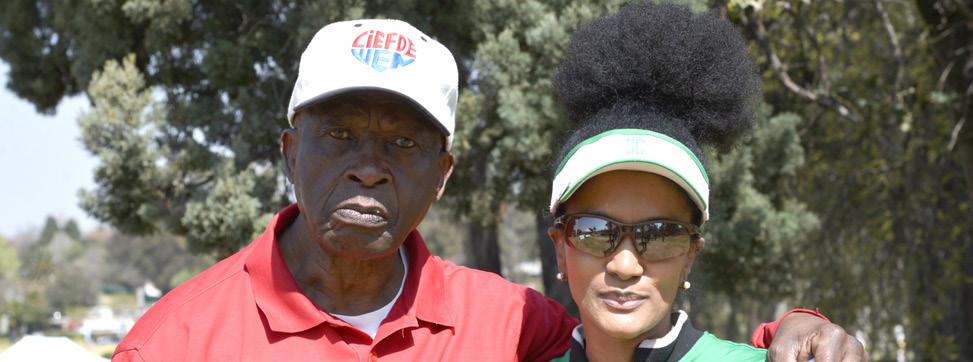
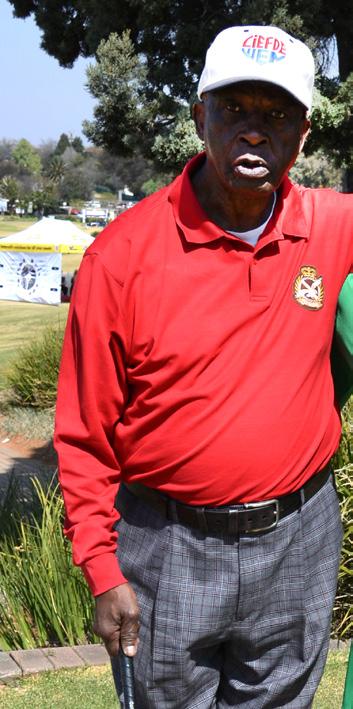

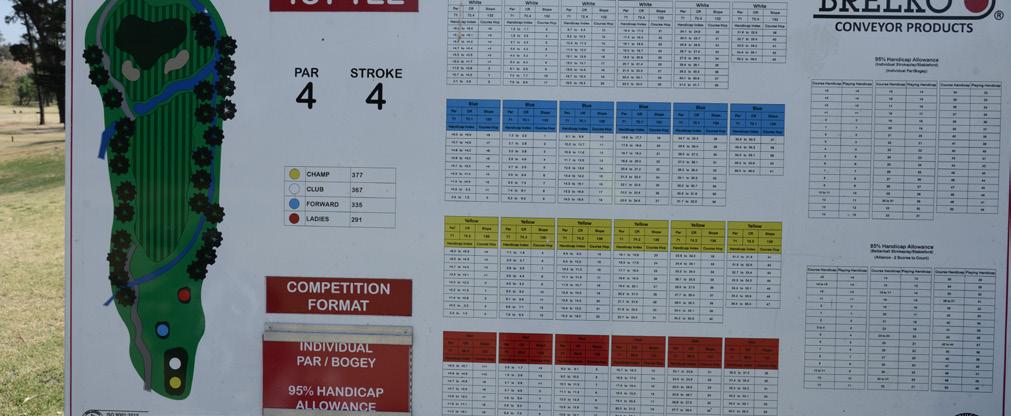
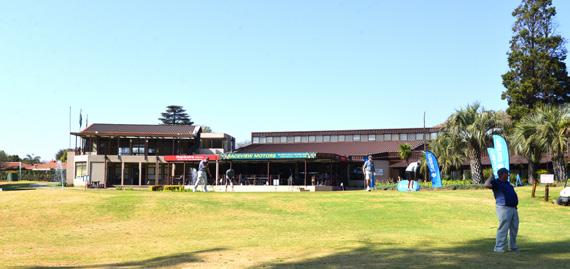

Golfer Lucky Koaho from Sanlam said she Enjoys playing at the event. “It was about fun and getting new business contacts,” she said.
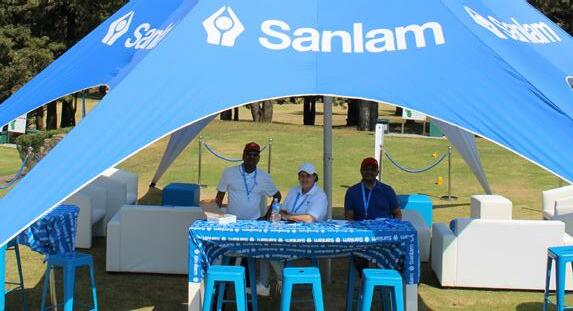

He said it was a good day to Get out of the office. “I enjoyed it. The tournament was great.”

This year SEIFSA staff manned Hole 13, and clients go to put faces behind the names of staff members who assist them on a daily basis.
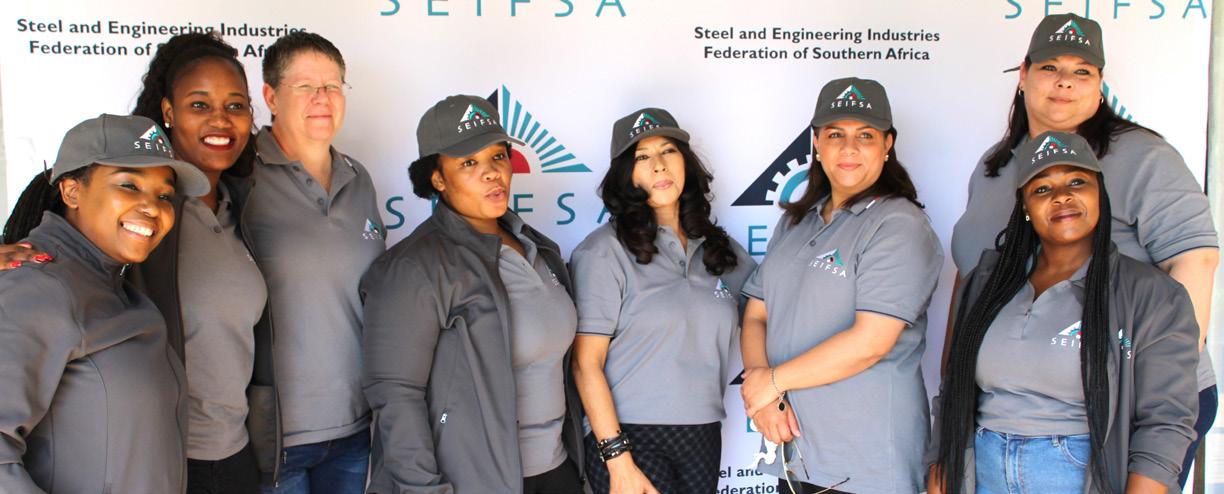
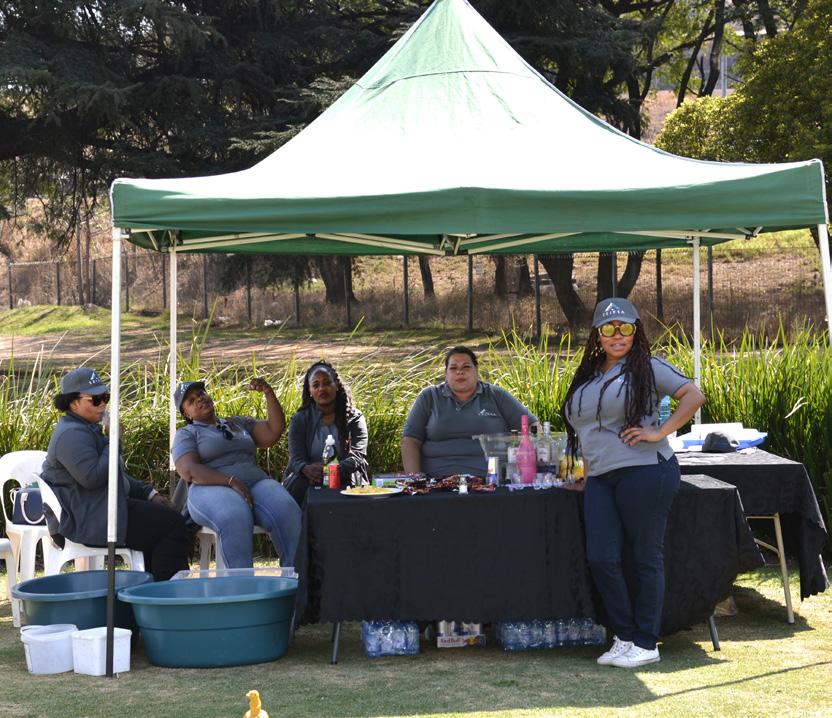



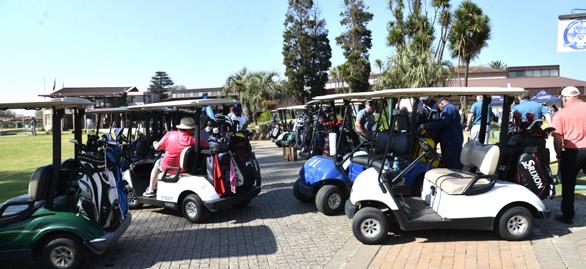










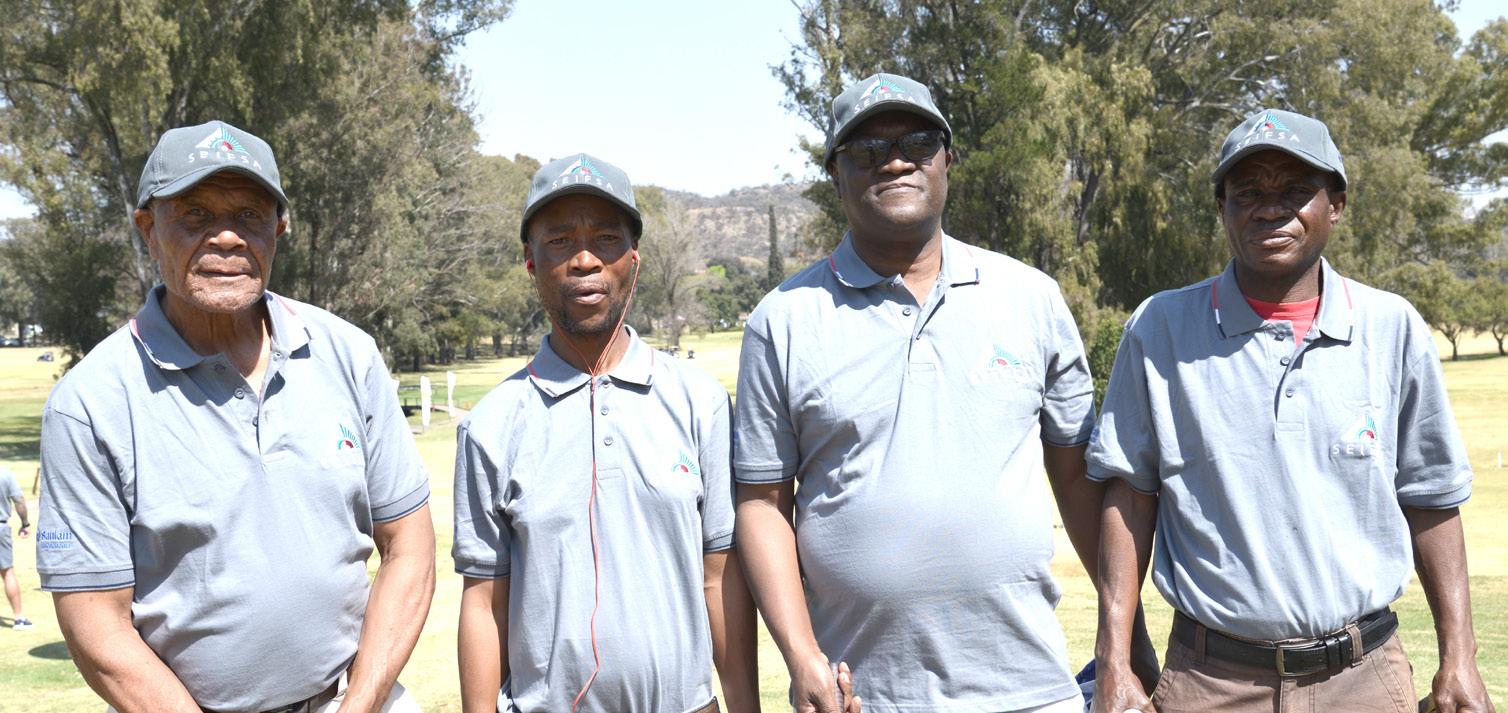

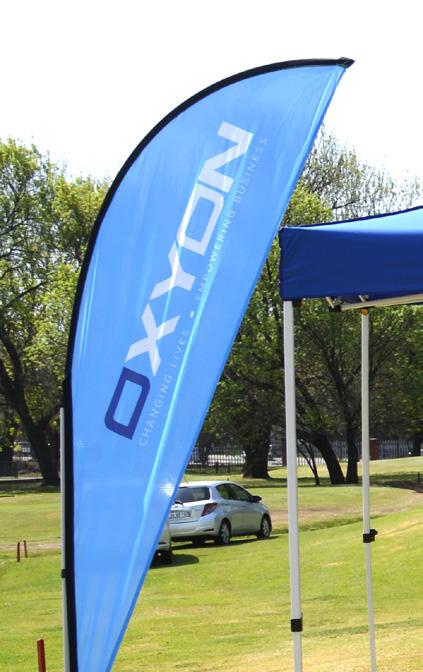

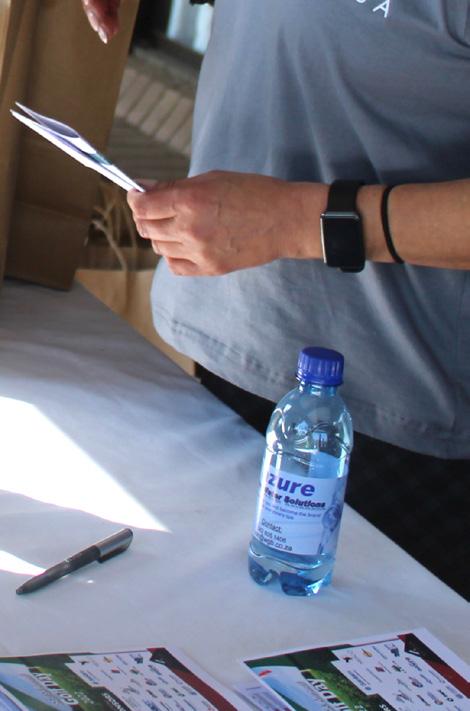

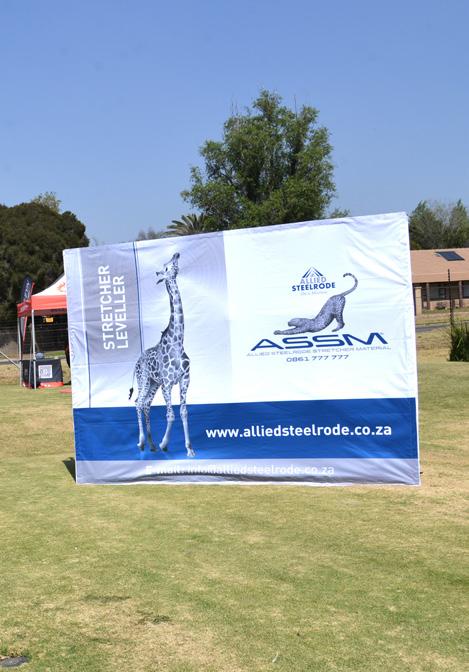

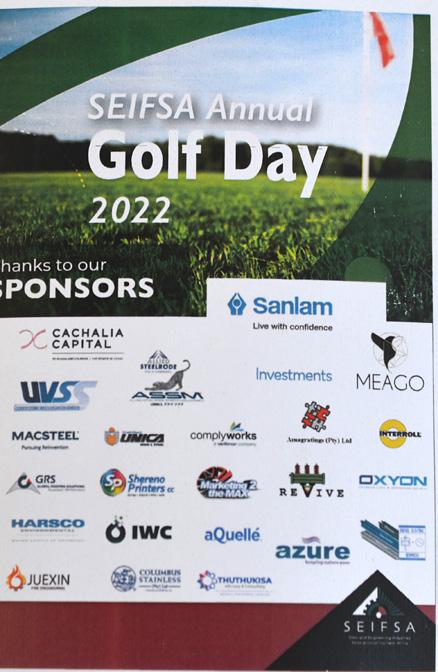

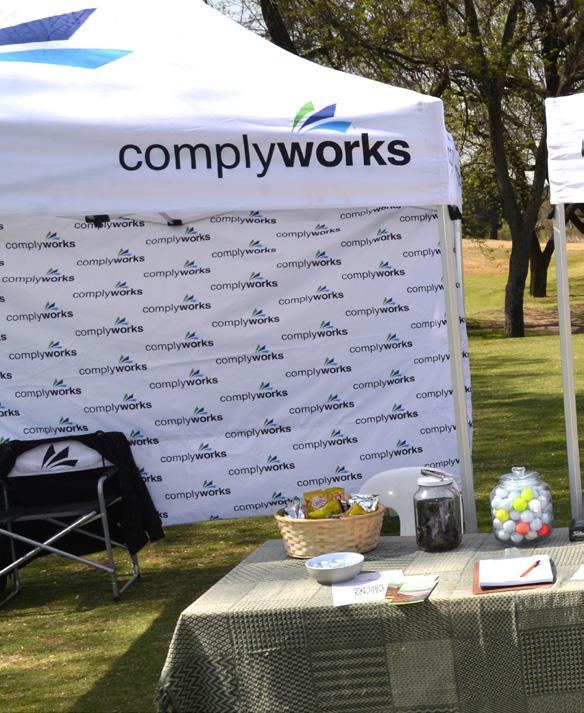

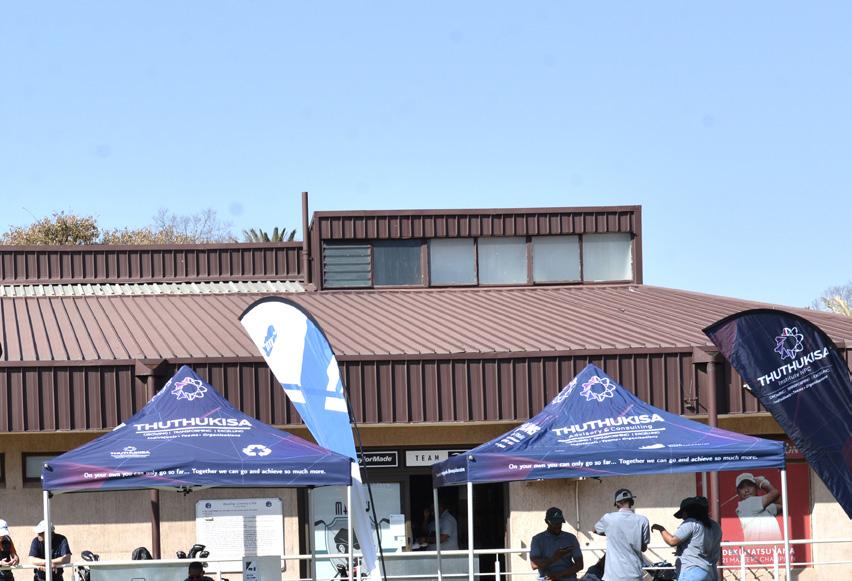

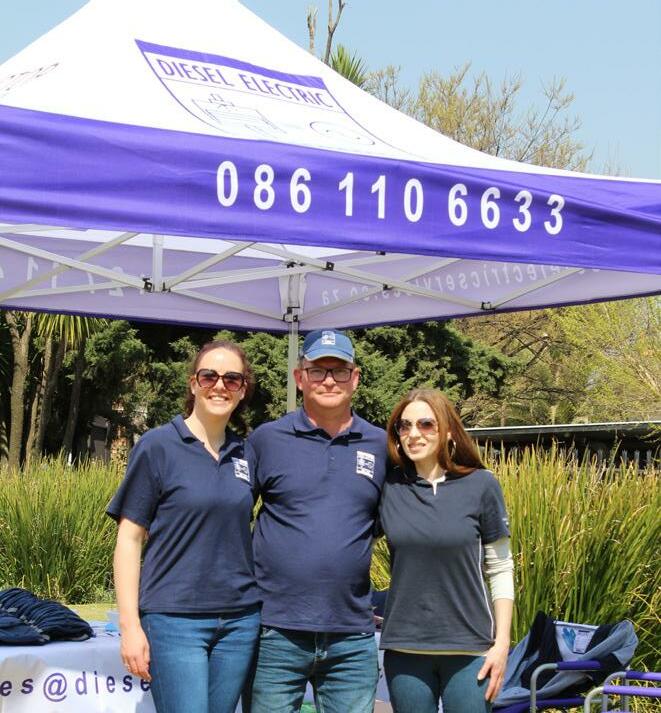
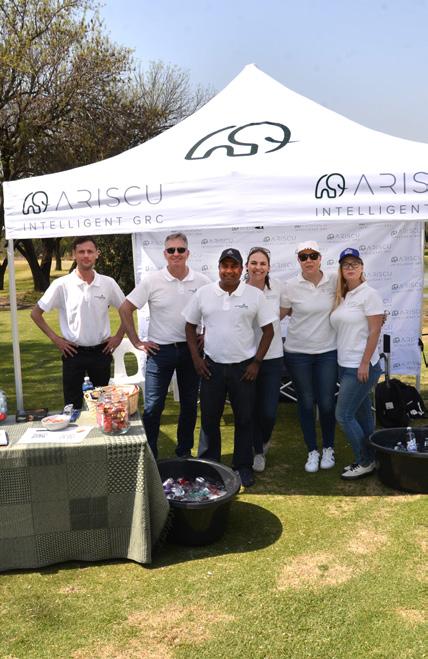
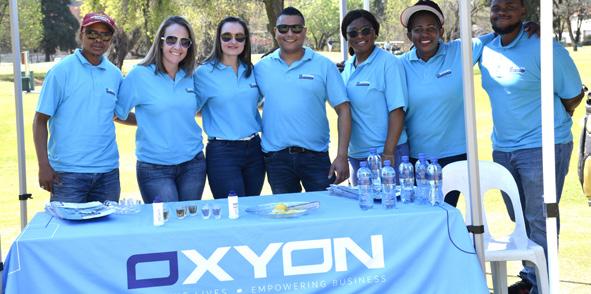
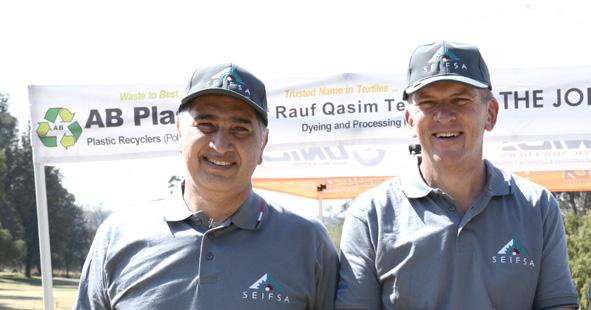
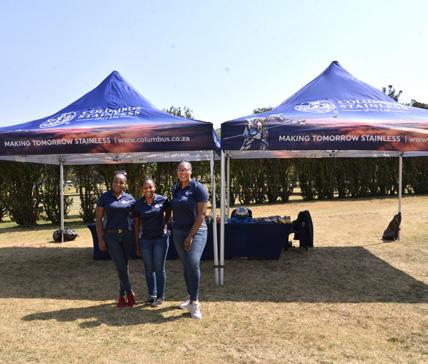


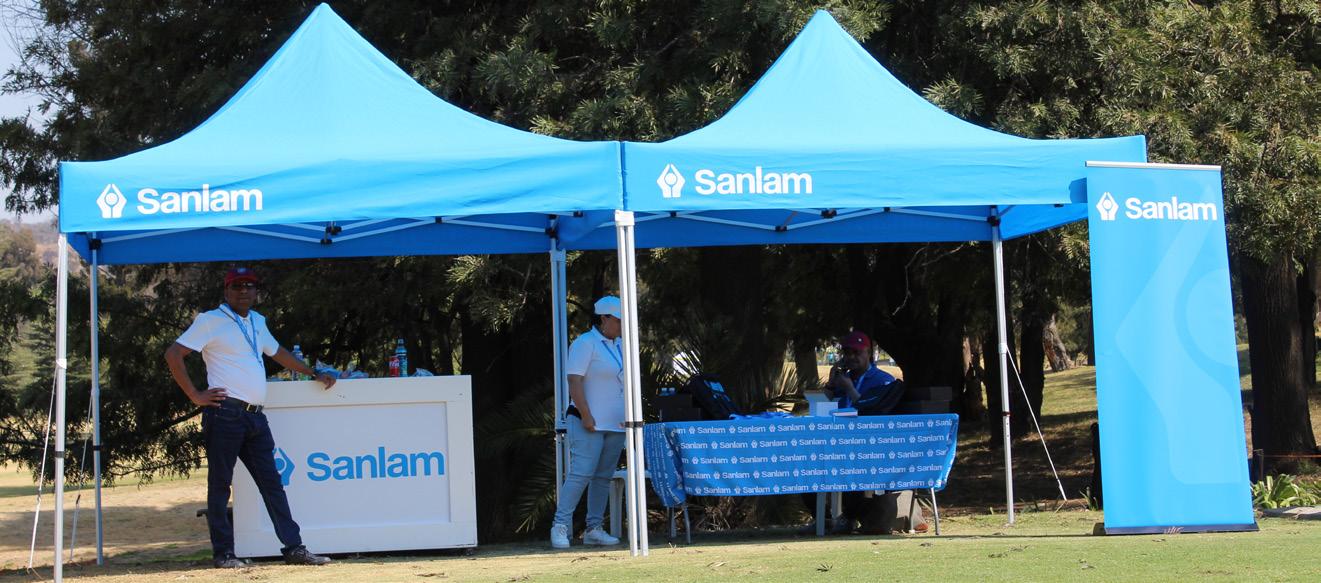


We can consult and train on any of the matters of Human Capital and Skills Development below:













• Skills Development Facilitator (SDF), Facilitator, Supervisory, Assessor, Moderator;


• Skills development Committee Training;
• How to earn maximum B-BBEE points through skills development;
• Workplace Skills Plan (WSP);
• Employment Equity Committee training and submission training;


• Change Management;
• Diversity and Social inclusion;

• Performance Management;
• Talent Management & Succession planning training;

• Self-motivated teams;
• HR Audit.



The HC & SD Division has a network of Alliance
national footprint.

Comparing registration numbers between March 2021 to March 2022, there has been an increase in registered gas practitioners according to the South African Qualification and Certification Committee for Gas (SAQQC Gas). That is excellent news! For the everyday South African who ben efits from gas products as well as the workers maintaining and installing gas systems, it means a safer year with higher levels of competency and compliancy in the gas industry.
SAQCC
SAQCC Gas is always striving for more awareness on gas-work competency and safety.
By registering as a gas practitioner, you are playing a crucial part in ensuring that every worker goes home safe at the end of each workday. For SAQCC Gas, part of achieving that goal is by providing members with the opportunity to have the training and com petency they need to remain safe on the job and support the safety of those with whom they work. “Involving industry members in advisory roles for the Safety and Technical Advisory Council (STAC) is inspirational and collaborative. STAC ensures a platform for sound debate and advice, resulting in improved safety and best practices across most gas disciplines within industry.
It is equally important for consumers utilising various gas products whether in commercial, industrial or specialised capacities to be vigilant about compliancy and make use of registered gas practitioners. For instance, South African homeowners should not
view Certificates of Conformity (CoCs) as indefinitely valid. Gas is very well regulated and often updated, therefore making it a safer energy choice. This means responsible homeowners should have their gas appliances inspected on a yearly basis at minimum to avoid being caught by surprise should they need to sell the property or if there is a costly fault due to lack of maintenance.
tremely dangerous as it can result in serious injury or even death. Registered gas practi tioners have the necessary experience, competency, equipment and knowledge to do the work safely the first time. Never settle for quick and cheap installations that compro mise on your safety. Insurance companies may not cover fire or public liability claims caused by non-registered persons as the gas installations will be deemed ille
Successes are imminent especially embrac ing emerging markets,’’ says Roy Lubbe, Chairman of the Southern African Gas Asso ciation (SAGA), which established STAC and is also one of the four member associations of SAQCC Gas.
It’s the community of consumers and gas practitioners working together to constantly build and improve the gas industry in South Africa. Each of the four associations emphasise that anyone can report an incident where an installation does not conform to current regulations. Work done by unreg istered persons is illegal and potentially ex-

Global fossil fuel supply and cost remains volatile as the Russian invasion of Ukraine persists. Worldwide supply chains and inflation have been thrown into chaos.
These circumstances are adding further pressure on the major sectors, which have the largest influence on global warming, to meet net-zero carbon emissions commitments. Buildings and cities, energy, transport, agriculture and industry sectors produce a combined massive 30.9 gigatonnes of greenhouse gas emissions annually, according to the United Nations Environment Programme’s (UNEP’s) 2020 edition of the Emissions Gap Report. Ultimately, there is an urgent need and great opportunity to develop greener technology.
African green initiatives is the South African Refrigeration & Air Conditioning Association’s (SARACCA’s) focus in this latest case study. Fifty-Two Engineering, members of SARACCA, recently completed a ventilation project for Anglo American. Mogalakwena platinum mine, located in Limpopo, South Africa, recently added a hydrogen production, storage, and refuelling complex on site to support their addition of a 2MW hydrogen-battery hybrid truck which is of Anglo American’s nuGen™ Zero Emission Haulage Solution (ZEHS).
In line with this, an impressive advancement in South
It is currently the world’s largest hydrogenpowered mine haul truck! As HVAC specialists, the Fifty-Two Engineering team were appointed to design ventilation systems in the plant where the hydrogen is produced, stored and used for fuelling.
Hydrogen is a greener alternative to fossil fuels that needs responsible handling due to its flammability when mixed with air. It is crucial to not only avoid leaks but ensure there is an instant plant shutdown in a potentially hazardous situation.
The HVAC objective for this project was to create a ventilation system with an integrated monitoring and warning system for the plant to operate continuously and safely. “We designed a system that keeps the environment clean and forces filtered air into the electrolyser building where the hydrogen is produced and stored,” says David Townley at Fifty-Two Engineering. This building required 6 fan filter units where five run simultaneously to achieve the 12 air changes per hour (ACH). Each
unit is fitted with a flow-pressure switch to monitor whether the fan is running. Should it be activated on a running unit, indicating a breakdown, the standby unit is activated, and an alarm will be raised at the HVAC panel in the main control room. Thereby maintaining optimum gas safety in the plant at all times and keeping the chain of production moving.
SARACCA is proud to support their members who are playing their part in a zero emissions future. The fact is that renewables are the way forward, and this hydrogen plant ventilation project is just one example of our industry striving for ambitious targets and spring boarding green development within South Africa. By becoming a SARACCA member, you too can have access to the latest information and training on greener, newer technologies.
SARACCA is an association of contractors who have individually and jointly agreed to a set of governing standards whilst operating in free competition against each other.
The common aim is to continually strive to improve the image and standards of the industry and the association provides a forum for this purpose. In July 2009 the Department of Labour published the “Pressure Equipment Regulations” as part of the Occupational Health and Safety Act Number 85 of 1993. The South African Qualification and Certification Committee for Gas (SAQCC Gas) have been accredited by the Department of Labour to register “Authorised Persons”. SARACCA, as a member of that committee, is tasked with registering refrigeration and air conditioning practitioners.

On 2 September 2022, the National Economic Development and Labour Council (NEDLAC) issued a new Code of Good Practice: Protest Action to Promote or Defend Socio-Economic Interests of Workers (Code) in terms of the Labour Relations Act, 1995 (LRA).
The publishing of the Code follows a national shutdown which took place in South Africa a few weeks ago to address issues such as the rising cost of living and loadshedding. While the national shutdown of 24 August 2022 proved not to be as ‘massive’ as the organising trade union federations, the Congress of South African Trade Unions (COSATU) and South African Federation of Trade Unions (SAFTU) may have hoped, employers at the time were gearing themselves up for potential unrest and may have been wondering what their rights and obligations were in respect of employees who chose to take part in the protest.

Protest action is synonymous with the history of South Africa and remains common today. In terms of section 77 of the LRA, every employee who is not engaged in an essential service or a maintenance service has the right to take part in protest action if:

the protest action has been called by a registered trade union or federation of trade unions; the registered trade union or federation of trade unions has served a notice on NEDLAC stating (i) the reasons for the protest action; and (ii) the nature of the protest action (s77(1)(b) notice);
- the matter giving rise to the intended protest action has been considered by NEDLAC or any other appropriate forum in which the parties concerned are able to participate in order to resolve the matter; and - at least 14 days before the commencement of the protest action, the registered trade union or federation of trade unions has served a notice on NEDLAC of its intention to proceed with the protest action.
Where the above requirements are met, employees must be permitted to take part in protest action or in any conduct in contemplation or in furtherance of protest action and, while the ‘no work no pay’ principle may be applied by employers, employees are, among other things, protected against dismissal for participating in the protest.
The Code now provides additional guidance on the application of section 77 and must be read alongside the Labour Relations Regulations. Among other things, the Code deals with the following:
The procedural requirements that must be met in order for the protest action to meet the requirements of section 77, including what form the notices to NEDLAC must take, how the notices may be delivered, the sequence of events in a section 77 referral and the time frames in which the process must take place.
The substantive requirements that must be met in order for the protest action to be ‘protected’ in terms of section 77. In particular, the matter giving
rise to the intended protest action must concern a matter that promotes or defends the socio-economic interests of workers; and there must be a consideration of the issues with a view to reaching consensus. In this regard, matters of socio-economic interest exclude (i) matters of mutual interest between employer and employee and (ii) matters of a purely political nature. Matters of socioeconomic interest include (i) issues that are major social and economic policy trends which have a direct impact on the trade union’s members and on workers in general, in particular as regards employment, social protection and standards of living; and (ii) matters which fall within the ambit of the social status and economic position of workers in general such as the imbalances in the education system as a result of past government policy.
The facilitation of considerations, including what issues must be addressed during the first meeting, the procedures to be followed and the obligations of the parties during the facilitation process. In this regard, among other things, the representatives of the parties are required to sign a ‘good faith declaration’ in which they declare that they will, inter alia, participate in engagements in good faith and with the sincere intention of resolving the matter.
interests of workers and provide mechanisms to promote a dialogue on these matters. It also serves to provide guidelines to NEDLAC, facilitators and other appropriate forums to which these matters are referred for the proper and effective consideration of these matters. The Code should, accordingly, provide useful structure to the discussions on socio-economic interests between relevant stakeholders going forward.
In this regard, the Labour Court has jurisdiction to:
(i) review and set aside NEDLAC’s decision that the matter is not a matter of socio-economic interest to workers;
From an employer’s perspective, the Code should also make it easier to determine whether the requirements of section 77 of the LRA have been met when assessing workers’ participation in protest action.
The establishment, composition, functions, quorum, obligations and decisions of the NEDLAC standing committee as well as the appointment of a panel of facilitators to facilitate the consideration of matters giving rise to a s77(1)(b) notice.
(ii) interdict protest action if there has been noncompliance with the provisions of section 77(1)(b), (c) or (d) of the LRA; and (iii) limit the protected nature or duration of the protest action by weighing the importance to the workers of the matter giving rise to the action against the nature and duration of the protest action.
This newsflash was prepared by Chloë Loubser. Please contact a partner in our Employment and Benefits Practice should you require further information.
Bowmans is a leading African law firm with offices in Kenya, Mauritius, South Africa, Tanzania, Uganda and Zambia and Alliance firms in Ethiopia and Nigeria.
The pre-consideration processes (i.e. how the s77(1)(b) notice is dealt with when it is served on NEDLAC).
The Code aims to strengthen and promote the consideration of matters concerning the socio-economic
In a media release on 31 August 2022, the Department of Employment and Labour (“Department”) confirmed that the signing into law of the Employment Equity Amendment Bill, 2020 (“the Bill”) is imminent. The President is expected to assent to the Bill between now and the end of the year. The amendments are due to come into effect on 1 September 2023.
The Bill will introduce various amendments to the affirmative action provisions of the Employment Equity Act, 1998 (“the Act”), these new provisions aim to achieve more rapid transformation in the workplaces of designated employers. The is against the background of the slow progress of transformation since the introduction of the Act in 1998. The most significant of the amendments in the Bill relate to the Minister of Employment and Labour’s power to set sector-specific employment equity targets to which designated employers will held to account.
The Bill empowers the Minister of Labour to identify national economic sectors for the purposes of the administration of the Act and to determine numerical targets for such sectors. These sectoral targets may differentiate between occupational levels, subsectors, regions or any other relevant factor. Before determining the targets, the Minister will be required to consult relevant stakeholders and the Employment Equity Commission on the proposed sectors and sectoral targets and publish any proposals for public comment.
In its media release, the Department stated that engagements on the setting of sector-specific equity targets started in June 2019 and will be completed by the end of September 2022.

These new provisions aim to achieve more rapid transformation in the workplaces of designated employers
“
Some of the sectors consulted include: - education; water supply, sewerage management & remediation; - accommodation and food services; human health & social work; - agriculture, forestry & fishing; wholesale and retail trade; - repair of motor vehicles and motorcycles; - administrative and support; - professional, scientific & technical; - electricity, gas steam & air conditioning supply; and financial & insurance activities.
The remaining sectors that are to be consulted between now and end of September 2022 include:
- mining and quarrying; public administration and defence, - manufacturing, information & communication, construction: and - real estate.
This means that it is likely that, fairly quickly after the Bill becomes law, the sector-specific targets will be circulated for public comment and thereafter, amended if deemed necessary, and implemented. Employers concerned about the targets should keep an eye out for the circulation of the proposed targets and make any submissions they deem necessary prior to the finalisation thereof.
In order to “incentivise” employers to meet targets, the Bill states that certificates will be issued by the Minister if: the employer has complied with any applicable sectoral targets or has raised a reasonable ground for non-compliance; - the employer has submitted its most recent employment equity report; and - within the previous 12 months, the employer has not been found to have breached the prohibition on unfair discrimination, or paid wages below the level of the minimum wage.

The importance of obtaining this certificate is that state contracts may only be offered and issued to employers who have been certified as being compliant with their obligations under the Act. Furthermore, a failure to comply with these requirements is a sufficient ground for cancellation of any state contract (should no reasonable ground exist to justify such non-compliance).
In the recent media statement, the Department stated that a new online assessment system will be created to monitor the implementation of sector targets. The first year in which the sectorspecific targets will apply is 2024. At the end of that reporting year, the system will be able to tell whether employers have achieved their target, and where employers are not meeting their target, they will need to have justifiable reasons for not achieving their set targets.
The system will accept, in good faith, all the information supplied but the Departmental inspectorate, may visit workplaces to verify if information submitted is genuine. In its statement, the Department seems to suggest that the system will automatically generate a compliance certificate for those who comply with the above. However, it goes further to expressly state that if the information supplied is not genuine, then the certificate will be withdrawn.
In addition to the above, the Bills seeks to amend the definition of a “designated employer” by deleting the paragraph which classifies employers with fewer than 50 employees, and who meet the required

turnover threshold, as “designated employers.” Consequently, employers who employ fewer than 50 employees, regardless of their turnover, will no longer fall within the definition of a “designated employer” and will therefore not be required to comply with Chapter III of the Act (which deals with affirmative action).
With the possibility that the President could assent to this Bill as early as September 2022, employers should analyse their existing transformation measures and implement the necessary preparations.
These employers will no longer be required to take certain measures, such as preparing and implementing an employment equity plan, consulting with employees and/or representative trade unions on matters and submitting an employment equity report on an annual basis. According to the memorandum on the objects of the Bill, this is intended to reduce the regulatory burden on small employers.
Compliance with the amendments, as soon as they are enforced, will be vital for businesses, since fines of between ZAR1 500 000 and ZAR2 700 000 may be imposed for a contravention of the Act.
Contravention of the Act fines is between ZAR1 500 000 and ZAR2 700 000
Lauren Salt: Executive lsalt@ENSafrica.com
Amy Pawson: Candidate Legal Practitioner apawson@ENSafrica.com
• SEIFSA News is in its 37th year of circulation and has evolved from a print publication, to being an online magazine circulated on all of SEIFSA’s digital platforms.
• This includes the SEIFSA website, Facebook, LinkedIn and Twitter. The publication is also available on SEIFSA’s digital showroom hosted by Engineering News.
• SEIFSA’s social media presence is continually growing both organically within the Metals and Engineering Sector as well as in related industries across the globe.
• SEIFSA News has an established reputation as the most authoritative voice in the industry. The publication focuses on the latest information on labour related matters and employment law, key trends in the skills development arena as well as a detailed economic reports and analysis highlighting trends in the sector.
• In addition, the magazine has an updated list of accredited temporary employment service providers (TES) who are affiliated to SEIFSA, registered with the bargaining council and metal industries benefit funds and who are recognised as reputable TES providers

• SEIFSA News is published bi-monthly every year and is circulated to both members and non-members in the Metals and Engineering Sector.
New size - FULL Page
Durban - Tattoos are an individual’s way of showcasing their personality. They are also symbols of religious and spiritual devotion, decorations for bravery, a way to capture memories, and pledges of love. However, those with tattoos still face discrimination when it comes to certain professions.
Durban - Tattoos are an individual’s way of showcasing their personality. They are also symbols of religious and spiritual devotion, decorations for bravery, a way to capture memories, and pledges of love.
However, those with tattoos still face discrimination when it comes to certain professions.

As the Police Minister Bheki Cele announced the recruitment of 10 000 additional police officers in July, he took a shot at people with these types of body markings.
“When you have a tattoo, we don’t hire you because you have a tendency of being a gangster,” said Cele.
The minister’s comments sparked a backlash, with him being accused of having an “old-school mindset”.
Among others, Ivan Meyer, the Western Cape Minister of Agriculture, tweeted that he distanced himself from Cele’s sentiments.
Minister of Crime,” posted Meyer.
According to Hugo Pienaar, director in the employment law practise at Cliffe Dekker Hofmeyr, discrimination based on one’s appearance is an ever-changing area of law that impacts employees and potential candidates worldwide.
“South Africa does not have any express provisions in section 9(3) of the Constitution or section 6(1) of the Employment Equity Act 55 of 1998 prohibiting appearance based on tattoo discrimination.

“Tattoos have traditionally been associated with fringe personalities who don them as a way of signifying their outsider status and rejection of mainstream society. With the exception of offensive tattoos that are, for example, racist or sexist, tattoos in modern times have become more common and accepted in society,” said Pienaar. He said tattoos and piercings are commonly dealt with in an employer’s dress code and grooming standards.
“As such, employees will need to base their claims on a listed ground. Thus, to succeed, an employee would have to argue that personal appearance should be protected under freedom of expression or personal dignity.”
For Thapelo Mkhwanazi, a 29-year-old accountant from Durban, tattoos are still a sensitive matter in the workplace. Mkhwanazi has them covering his arms and neck, making them difficult to hide in the office.
However, the legal expert believes the recent increase in litigation in other jurisdictions coupled with the public outcry to Cele’s comments warrants a focus on discrimination on the basis of tattoos.
“I was not explicitly told to cover them, but it was heavily implied. As a result, I mostly wear polo-necks sweaters and shirts, even though we don’t have a formal dress code in place. I am nervous about what I will do if I have to look for another job in the near future,” he said.
“It is ridiculous. What did he smoke to make such remarks? I have more respect for people with tattoos than for this ”malkop“ (nonsensical)
But can an employee be dismissed for a WhatsApp message?
According to legal firm Wright Rose-Innes, it is possible to be fired for WhatsApp posts if certain factors are considered and if a fair reason for an employee’s dismissal is established.

Work-related group chats have become all too common in South Africa, with employees and employers able to communicate at a touch of a button even outside of work hours – opening up the possibility of something controversial being said.
In establishing whether there are fair reasons for dismissing an employee for misconduct, the following can be considered:
Did the employee contravene a rule or standard regulating conduct in the workplace?
- If the rule or standard was contravened, was the rule a valid or reasonable rule or standard?

- Was the employee aware, or should reasonably be expected to have been aware of the rule or standard?
Was the rule consistently applied by the employer?
- Is dismissal an appropriate sanction for a contravention of the rule or standard?

In a recent CCMA arbitration, the CCMA had to decide whether an employee dismissed for a WhatsApp group message was fair or not.
In this case, the employee, a senior employee of a security company working at a client of the company, posted a message on a WhatsApp group of the client, essentially advocating employees not to be vaccinated against Covid-19.
Wright Rose-Innes added that the client company had taken a decision to encourage its employees to get vaccinated and incentivise employees that did.
policies of the client and accordingly instructed the employee to keep his opinions to himself.”


Despite these instructions from the employer, the employee proceeded to post an article on the client’s WhatsApp group, which included members of senior management of the client. The article aimed to discourage employees from being forced by their employers to be vaccinated.
The employee, despite protesting that he was merely sharing information, clearly aligned himself with the article.
The WhatsApp group had not been established for the purpose that the employee used it for, and he was aware thereof.Although there was no specific rule about not posting on the group, it was reasonable that an employer could not be expected to publish a rule for every possible transgression.
In terms of the Labour Relations Act, a dismissal is unfair if an employer fails to provide a fair reason for the dismissal or if the dismissal did not follow a fair procedure.
The employer subsequently dismissed the employee due to this post, and the employee referred the matter to the CCMA for arbitration. The CCMA, in applying the above considerations, found that:
In this case, the employer had warned the employee not to post as this could damage the relationship with the client. The employee had overstepped his boundaries as it was not his place to warn the client or their employees about the client’s policies.
“The dismissed employee took issue with this incentive but was informed by his employer that they, as a contracted security company to the client, were not involved in the
Although the issue of vaccination is controversial, the client company was not imposing mandatory vaccinations but merely incentivising employees to consider them.
The actions of the employee brought the employer into disrepute with the client, who was on the verge of terminating the security contract with the employer. Accordingly, the CCMA held that, given the circumstances, the dismissal of the employee was an appropriate sanction.
What can be taken from this is that social media and group information sharing platforms like WhatsApp do not live outside the normal responsibility of an employee to have a duty of good faith towards their employer, said Wright RoseInnes.

“Employees should therefore take great care when posting and consider whether there could be any breach of this duty or reputational damage to their employer whenever they use such platforms or post information. It does not mean that an employee can be fired for anything, but careful consideration is definitely advisable.”

From an employer perspective, it is also recommended to formally regulate what the employer’s policies regarding social media and group communications are and to ensure employees are aware of these boundaries and can so better abide by them, added the firm.

 By: Jacques Van Wyk and Michiel Heyns
By: Jacques Van Wyk and Michiel Heyns
Here we analyse what constitutes an offer and acceptance for the conclusion of a contract of employment.
In the case of Ntsunguzi v M2 Bio Food and Beverage (Pty) Ltd [2022] (CCMA), following a series of interviews, the interviewee received an email from the prospective employer which read “we would like to offer you a position at our company, for a probation period of three months starting 1 October 2021. For this interim period we can offer you R20,000 per month as compensation. We look forward to hearing from you.”
The interviewee replied to this correspondence seeking further details concerning the remuneration offered and expressed excitement by stating “Looking forward to hearing from you and definitely looking forward to the 1 October.” The following day the interviewee sent a further email which stated: “Just following up on the conversation below, I’m expected at the Woodstock office on 1st October and not Houtbay, is that correct?” The interviewee was then advised that the employer was still reviewing candidates and approximately a week later he was informed that another candidate was chosen.
The commissioner stated that in order to conclude a binding contract, acceptance must be clear and unequivocal or unambiguous. A counter offer is not sufficient. In this instance the interviewee unequivocally accepted the offer. The fact that he did so via email correspondence did not matter and neither did the fact that he requested some clarity about his salary. When he accepted the offer, he became an employee. By not appointing him, the employer breached the contract of employment that was established. His dismissal was therefore procedurally and substantively unfair.
up’ correspondence that he was still awaiting the offer. Thereafter, the interviewee had been told that another candidate had been placed in the position.
looking’ process. As summarised in Young v Barnes Group [2019] (CCMA), for an employment agreement to be valid, there must be:
Conversely, in the matter of Tshiki v Nelson Mandela University [2022] (CCMA), following a recruitment process, the interviewee claimed that he was informed telephonically by an HR consultant of the employer (who thereafter passed away) that he had been successful in his application for a position he applied for. Whilst being informed of this, he was advised to send his payslip to her in order to finalise the offer. On his own version, the HR consultant later informed him that the shortlisting process for the position had been challenged and the offer had been delayed. The interviewee confirmed in a ‘follow-
In this case the commissioner found that no contract of employment was concluded as there was – on his own version – no offer and no acceptance.
In both the Ntsunguzi and the Tshiki matters, the CCMA referred to the Labour Appeal Court’s (LAC) decision of Wyeth South Africa (Pty) Ltd v Manqele and others [2005] (LAC). In the Wyeth matter, the LAC held that a person who has concluded a contract of employment but has not yet commenced working for the employer, is an employee, for purposes of the Labour Relations Act 66 of 1995.
1. an intention to create a legal relationship;
2. offer and acceptance;
3. agreement as to the essentials of the contract; and
4. consensus as to the rights and duties of the parties.
Employers are reminded to avoid providing offers of employment if the relevant recruitment processes or details of a vacant post have not been finalised as a valid employment agreement may still be created and enforced through offer and acceptance.
Ultimately, a factual enquiry had been conducted in both the Ntsunguzi and Tshiki matters to determine whether the principle confirmed in the Wyeth matter had been established, that is, whether a contract of employment had been concluded. The factual enquiry involves a ‘backward-
Jacques van Wyk, Director, Michiel Heyns, Senior Associate, Werksmans Attorneys
We consult and train on any of the matters below:



• Main Agreement;


Grading;
Chairing disciplinary enquiries;
Shopfloor;
Arbitration;

Basic Conditions of Employment Act / employment contracts;









Sick Leave and Absenteesm;
Equal Pay for Equal Value Provisions;
Labour Law matters;

Dispute resolution;

Conciliation;





Labour Court;
Retrenchments.

Relations Executive vuyiswa@seifsa.co.za
Michael LavenderRelations Manager michaell@seifsa.co.za

Visit our website for a range of Industrial and Labour Law publications
Industrial Relations Services





While there is no employment retirement age prescribed by law in South Africa, many employers have set retirement ages for their employees. An employee’s retirement age may be agreed in the employee’s employment contract or contained in a policy document or retirement fund rules. However, whether it be for financial reasons, the desire to remain productive, or the ease with which employees can now work remotely, it has become increasingly common for employees to work beyond retirement age. Terminating such employees’ employment after they have reached retirement age has historically been tricky territory for employers to navigate and has led to a number of legal challenges over the years. These challenges have arisen in the context of section 187(1)(f) read with section 187(2)(b) of the Labour Relations Act, 1996 (LRA). In terms of these sections, a dismissal based on age will be automatically unfair (and constitute unfair discrimination), unless it can be shown that the employee has reached the normal or
agreed retirement age for persons employed in that capacity.
After some diverging case law emanating from the Labour Court, the Labour Appeal Court (LAC) confirmed the legal position in the matter of MISA obo Landman v Great South Autobody CC t/a Great South Panel Beaters.
The employee, with the assistance of the Motor Industry Staff Association, referred an automatically unfair dismissal dispute to the Labour Court. The Labour Court held that a dismissal based on age is not automatically unfair in circumstances where the employee ‘has reached’ the normal or agreed retirement age. As the employee in this case had reached the agreed retirement age of 60, his dismissal was accordingly fair.
The employee in this case commenced employment with Great South Panel Beaters (GSPB) during November 2007. The parties entered into a written employment contract that provided that the employee’s retirement age was 60. He turned 60 on 15 March 2018 but continued working. Neither party raised the issue of the employee’s retirement until GSPB wrote to the employee on 14 January 2019 informing him that his services would terminate with effect from 12 February 2019, as he had reached the agreed retirement age of 60.
The employee appealed to the LAC, arguing that where an employee continues working after reaching the agreed retirement age and neither party relies on the fact that he has reached his retirement age, a new (second) employment contract comes into existence. It is then impermissible for the employer to rely on the retirement age as per the first employment contract, as the relationship is now governed by the terms of the new employment contract. Consequently, any dismissal based on age will be automatically unfair,
unless the employer can prove that the parties agreed on a new retirement age or there is a normal retirement age that applies to the employee. The employee contended that allowing an employer to rely indefinitely on an agreed retirement age months or years after the employee has reached that age effectively puts the employee at the mercy of the employer and is open to abuse.
that it would be impermissible for an employer to rely on section 187(2)(b) in circumstances where the employee’s age is not the real reason for the dismissal. Where, for example, the real reason for the dismissal is based on the employer’s operational requirements, then it would be open to the court to order the employer to pay severance pay.
unchanged. The employer will then be free to dismiss the employee based on age at any stage thereafter by relying on section 187(2)(b) of the LRA.
The LAC’s findings
The LAC disagreed with this argument and agreed with the Labour Court. It held that section 187(2)(b) of the LRA is clear and unambiguous: a dismissal will be fair where the employee ‘has reached’ the agreed or normal retirement age, that is, where the employee has passed her/his agreed or normal retirement age. Properly construed, the section affords an employer the right to dismiss an employee fairly based on age, at any time after the employee has reached her/his agreed or normal retirement age.
This decision is in line with the balance of authority emanating from the Labour Court in recent years, including the decision of Solidarity obo Strydom and Others v SITA, decided in May this year, where the Labour Court held that SITA could avail itself to the protection in section 187(2)(b) from the date that the employees reached their normal retirement age and at any time thereafter.
This will be the case unless it can be proven that a new retirement age has been agreed between the parties, or it is clear from the employer’s unequivocal conduct that it has waived its right to dismiss the employee after she/he has reached retirement age. According to the LAC, this interpretation is consistent with the purpose of the section, which is to allow the employer to create work opportunities for younger members of society, which is particularly important in the context of South Africa with its unprecedented unemployment levels.
The trend of working beyond retirement age is likely to continue, but employees who do so should be mindful that they will, in effect, be working on ‘borrowed time’.
The court disagreed that this interpretation would leave employees vulnerable. The court confirmed
Accordingly, where an employee continues to work for an employer uninterrupted after reaching retirement age, the legal position is now clear: the employment relationship and employment contract continue, and the agreed or normal retirement age remains
This article was prepared by Chloë Loubser
Bowmans is a leading African law firm with offices in Kenya, Mauritius, South Africa, Tanzania, Uganda and Zambia and Alliance firms in Ethiopia and Nigeria.
Most Digitally Innovative Company of the year Award
Best Customer Service Award
Entries open on the 01st July 2022 and Close 30 September 2022.
Depending on the description and criteria of the category, the finalists may nominate themselves or be nominated by a third party.
The majority of the judging process is based on qualitative criteria and not a quantitative process.
Two entries in a category are sufficient to maintain that category.
One entry in a category may be awarded a COMMENDATION if the judges believe it, is a worthy single entry. Should the single entry not be valid, the category will be withdrawn for that year.
Awards Categories
Most Transformed Company Award
Workplace
and Safety Award
Entrepreneur Award
Requirements of all entrants: Entrants must disclose BBBEE status. (Applies to Companies/organisations)
Artisan Training
Projects January 2020- December 2021 www.seifsa.co.za/awards-for-excellence/
Social Responsibility Award Business Resilience of The Year – (Covid) Business Woman of the Year Award
Stewardship Award
Closing date 21 October
Entered project must be from Southern African regions.
Lorem ipsum
Entered project must have been fully completed within the awards time period. A signed declaration from client is required.
Only projects completed between 1 January 2020 and 31 December 2021 are eligible for entry into the projects award categories for 2022. Projects must be completed on time, within budget and to the satisfaction of the client, and abide by all health and safety regulations.
Categories are divided into the following groups: Projects; Business; Individual
Awards entry closing date is subject to change but will be adequately communicated by SEIFSA


Finalists will be required to be interviewed by judges. Convenient times will be determined and insome cases site visits will be coordinated.
The awards event will take place 18 November 2022
There are NO FEES payable for entries.
The Grading of employees in the Metals and Engineering Industries remains =one of those subjects that have left many employers & employees with questions that remain unanswered. As you prepare for the meetings to try and provide some reasonable answers for the grading questions/issues, you just don’t seem to come up with the right answers or solutions. Well, here is an opportunity ………..
Remember, once you have booked send your question/s to mandy@chriswright.co.za with the heading Q&A SESSION by no later than 21st of October so that Chris can prepare his response.
Even if you don’t have any pressing issues, you could benefit from someone else’s questions and from the information that will be shared.




Chris is a Mechanical Engineer with over 25 years of experience in Senior Management/Director positions in the manufacturing sector. In 2019 Chris exited the corporate environment to open his own business, Chris Wright Associates (Pty) Ltd, and his mission is to drive the “Core Manufacturing Performance Drivers” in striving for greater financial profitability.

SEIFSA understand all too well the consequences of industrial action in the context of wage bargaining. A four-week strike in 2014 followed by a threeweek strike last year left many an employer on the brink of contemplating closure.
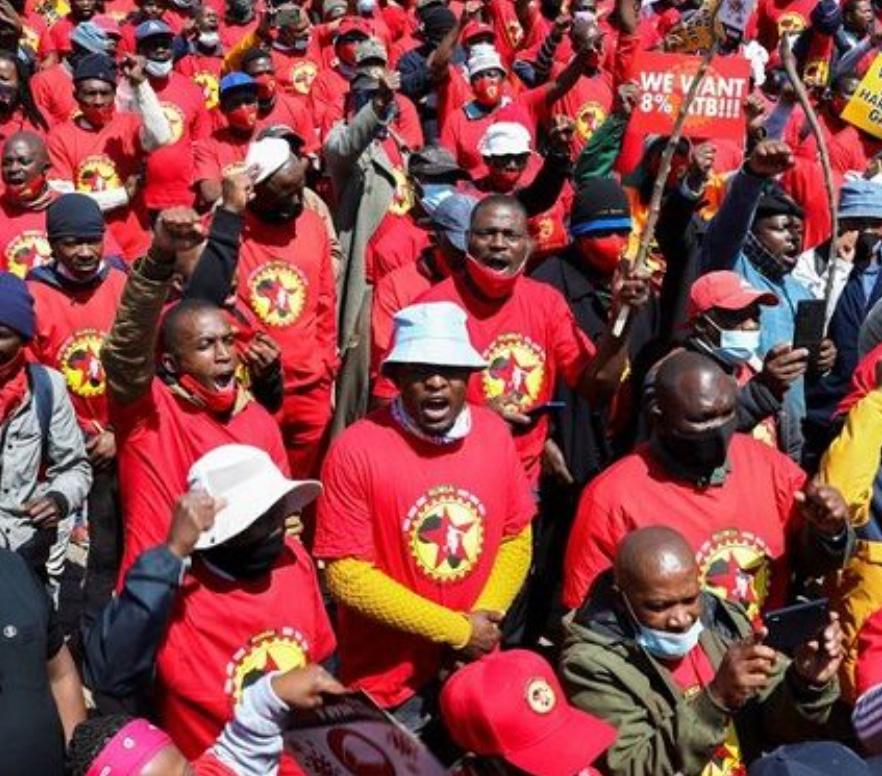
South Africans under the age of 24 are unemployed, consumer inflation is at a 13 year high and one in four people live below the food poverty line.
Arguing that the right to strike is enshrined in our constitution and strike action is a functioning mechanism of collective bargaining is ignoring the obvious and avoiding reality. South Africa is on its knees. The stakes are higher than they have ever been. Our economy is under siege as it battles a job, growth and hunger crisis. A devastating 63.9% of
A full-blown strike at Transnet, which seems unavoidable, will have a serious effect on the economy, it will halt exports and put thousands of jobs on the line. Under the current harsh economic climate, Transnet as with Eskom, is crucial to the country’s economy. Transnet’s rail and port facilities are key to exporting the country’s bulk commodity exports such as coal, iron ore, chrome and manganese. Exporters rely heavily on efficient
rail networks and ports, but as we know, Transnet has been operating below capacity for years as it grapples with a shortage of locomotives, cable theft, vandalism, poor maintenance and outdated and slow port infrastructure. This substandard service has had a significant impact on the local steel industry and its ability to manufacture steel to meet its customers’ demands. In some instances, primary steel producers have had to shut down operating plants due to the unavailability of raw materials, at great cost to their businesses and the economy.
A full-blown strike at Transnet, will add to the damage suffered by the South African economy. This will be as bad as load-shedding in terms of economic impact. For an economy battling to maintain momentum this could well be the final nail in the coffin.
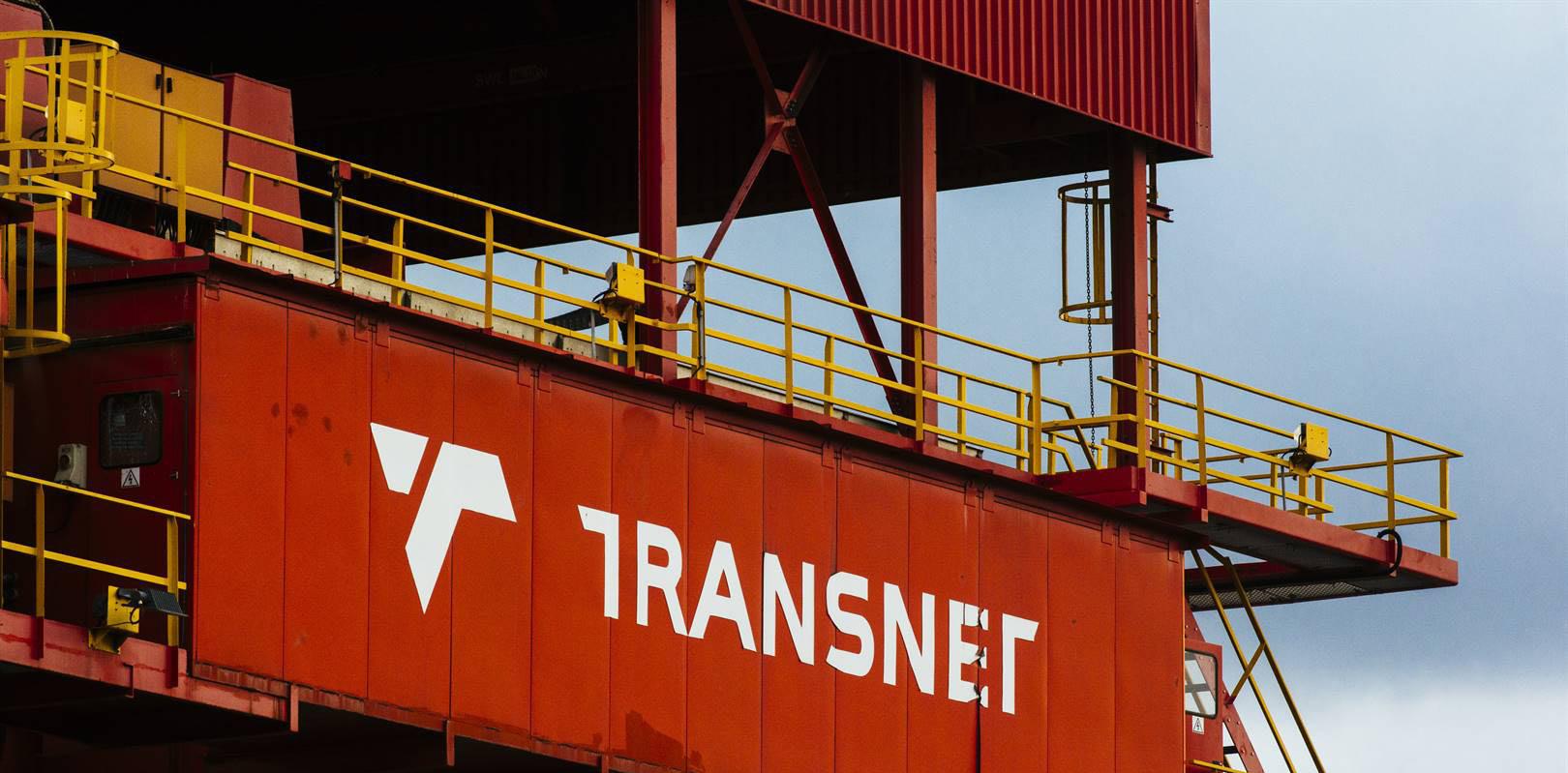

With load-shedding being reintroduced as from today, workers threating to paralyze Transnet and Transnet having already declared force majeure, we appeal for a constructive approach that seeks to advance the interests of our country.
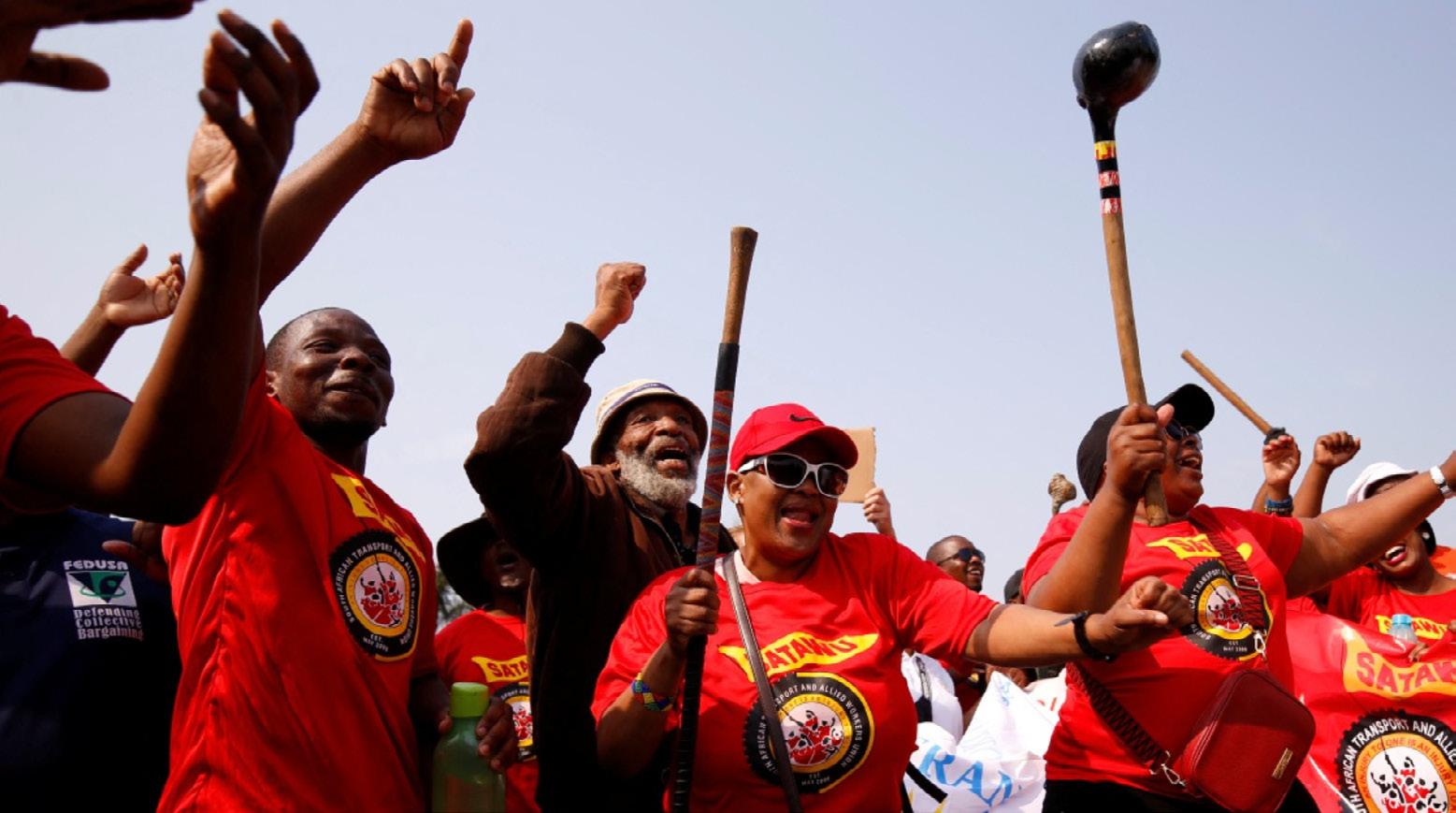
We know that it will not be easy to make compromises, but we appeal nevertheless for a win-win approach to the negotiations, as opposed to a winner-takes-all approach. Our plea to all the negotiators, and to those from whom they obtain their mandates, is that you rise above your narrow interests and put the interests of the South African economy first, and look to settle quickly.
Lucio Trentini SEIFSA Chief Executive Officer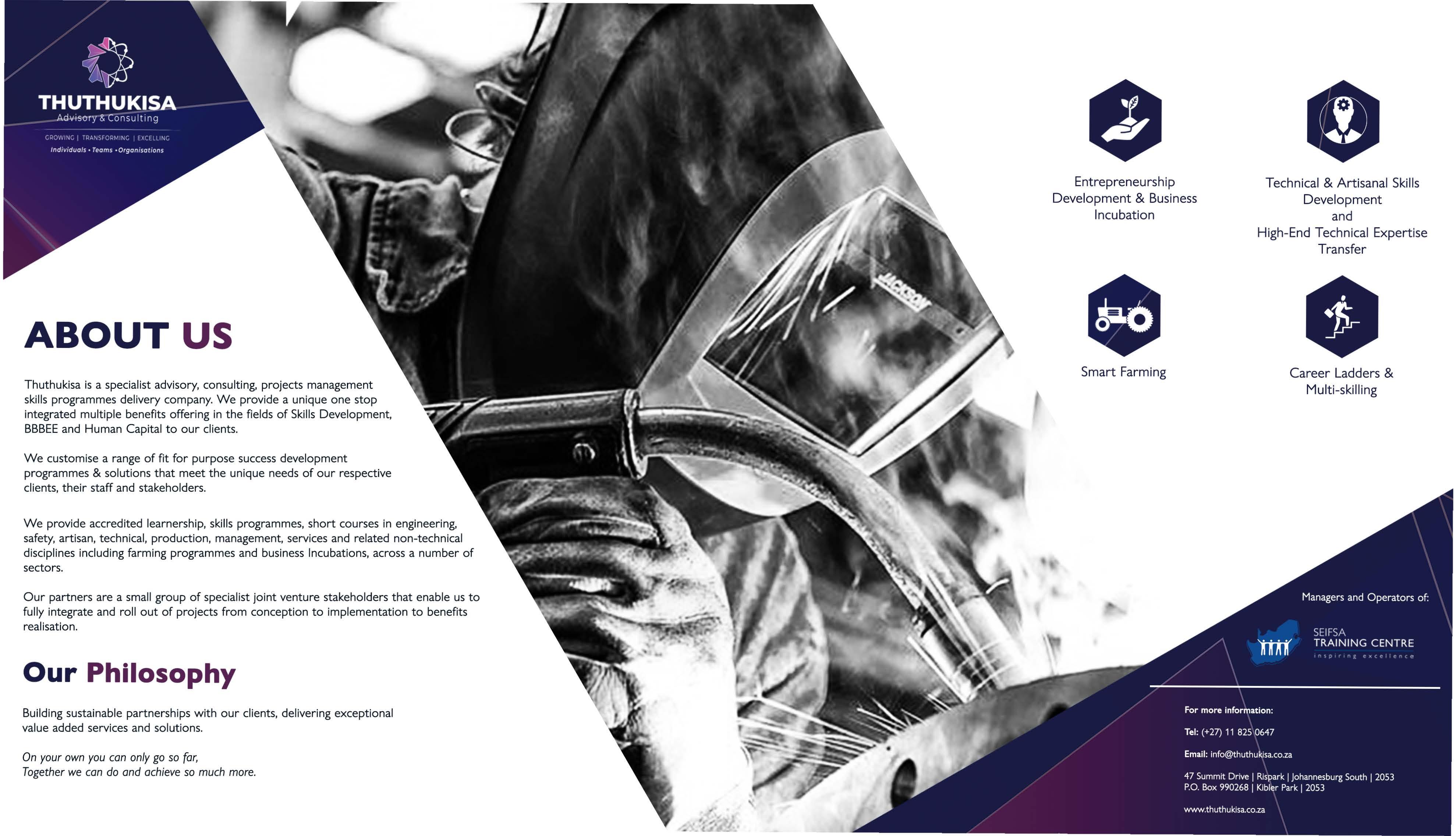
One







Webinar
Webinar

